












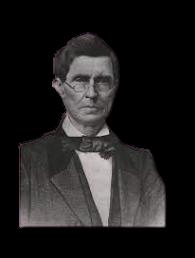

Page Turner is a magazine for Georgia’s readers and writers and any Georgiaphiles who enjoy learning about our state’s literary offerings, heritage, and events.
















Page Turner is a magazine for Georgia’s readers and writers and any Georgiaphiles who enjoy learning about our state’s literary offerings, heritage, and events.

Each quarter, a team of experienced, award-winning writers will bring you suggested readings from the Reader’s Corner, tips and helpful advice from the Writer’s Corner and Writer’s Toolbox, and a feature on notable Georgia writers. For children, their educators and guardians, and anyone working on children’s books, we will feature four Children’s Books each quarter with suggested activities in Children’s Corner Spotlight on Book Clubs will share book club stories from across our state, and maybe inspire you to start one! These articles will be staples of each issue, but others will pop up from time to time, so don’t miss out each quarter.
Brought to you by:
Georgia Writers Museum celebrates the state’s rich literary history, promotes its contemporary writers, educates readers and writers of all ages, and connects people to the literary arts of Georgia.
Atlanta Writers Club teaches the craft and business of writing, supports the local literary community, and encourages more reading by the public.
Cover Photo Source: Reynolds Lake Oconee
info@georgiawritersmuseum.org
706.991.5119
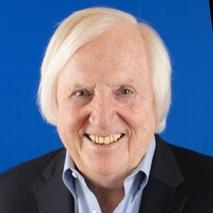

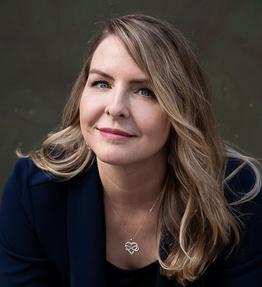
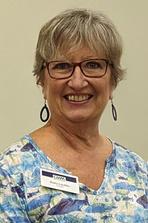



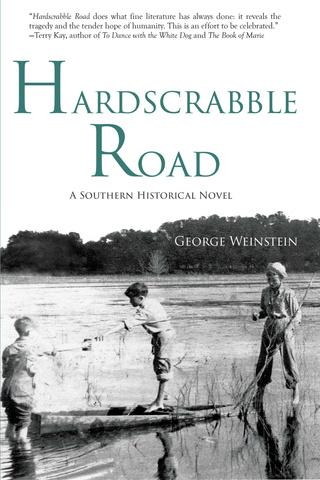



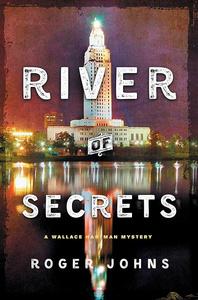
ChipBell
ManagingEditor,PageTurner
Author&KeynoteSpeaker
Chip is a renowned keynote speaker and author of several bestselling, award-winningbooks.HehasappearedliveonCNBC,FoxBusiness,and CNN, and his work has been featured in Fortune, Wall Street Journal, Forbes, USA Today, Entrepreneur, Inc. Magazine, and Harvard Business Review
GeorgeWeinstein
Writer,PageTurner
ExecutiveDirector,AtlantaWritersClub
Georgeisanaward-winningauthor,two-timePresidentofAtlantaWriters Club, and since 2008, he has directed the twice-yearly Atlanta Writers Conference, bringing in acquisitions editors and literary agents to help AWC members understand the business of writing and achieve their dreamsofpublication.
KimConrey
Writer,PageTurner
Kim is the author of the sci-fi romance series, Ares Ascending, and the urbanfantasy,NicholasEternal Shewasthe2023GeorgiaAuthorofthe YearforRomance.
BettyLiedtke
WriterandCopyEditor,PageTurner
FormerColumnist,Chanhassen(MN)Villager
Award-winning columnist Betty Liedtke currently serves as Secretary of Georgia Writers Museum, and is an active member of Toastmasters International, Pathways to Hope—Africa, and the Greensboro Writers Guild.
JimAuchmutey
Writer,PageTurner
FormerReporter,AtlantaJournal-Constitution
Jimspentalmost30yearsasawriterandeditorfortheAJC,specializing in stories about the South and its history and culture. He was twice namedtheCoxNewspaperschain’sWriteroftheYearandwashonored bytheRobertF.KennedyJournalismAwards,andtheAssociatedPress.
RogerJohns
Writer,PageTurner
Rogerisaformercorporatelawyer,retiredcollegeprofessor,theauthor of the Wallace Hartman Mysteries, and the 2018 Georgia Author of the YearforMystery/Detective.
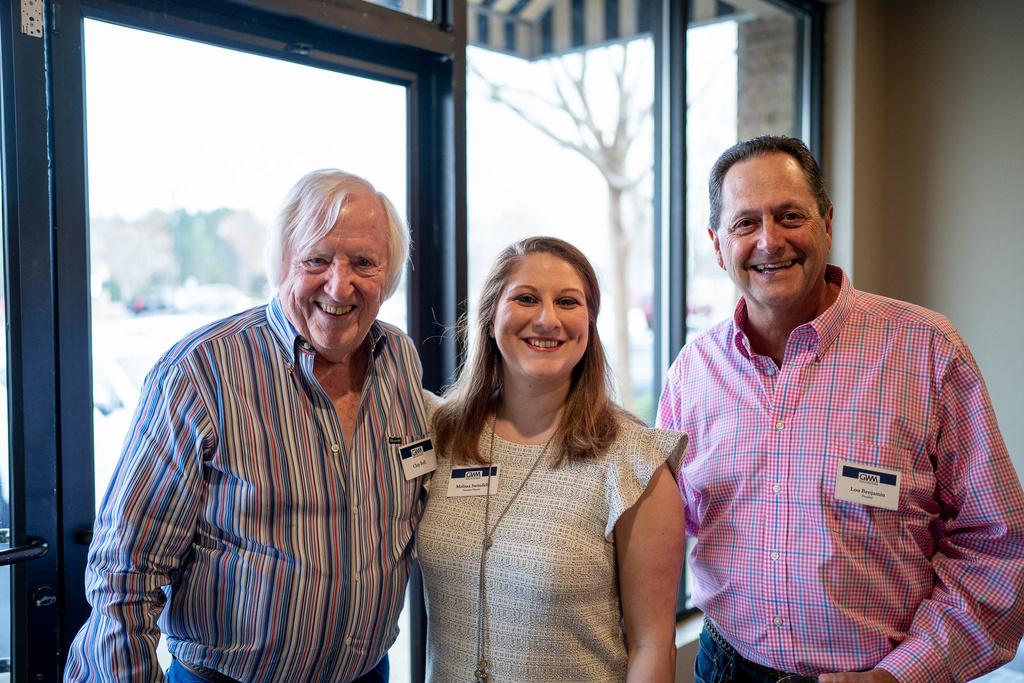
Chip and I invite you to:
Georgia’s readers and writers and any who enjoy learning about our state’s literary offerings,
Share your feedback. Do you love Page Turner? Let us know!
Tell us what you want to see in upcoming issues.
Sponsor a low-cost ad for your book talk, writing workshop, festival, or bookstore.
Write with us! Submit an application to join our all-volunteer writing team.
Spotlight a Book Club. Are you in a book club, or do you know one that should be featured? Send it in!
Contact us online at:
www.georgiawritersmuseum.org/ page-turner
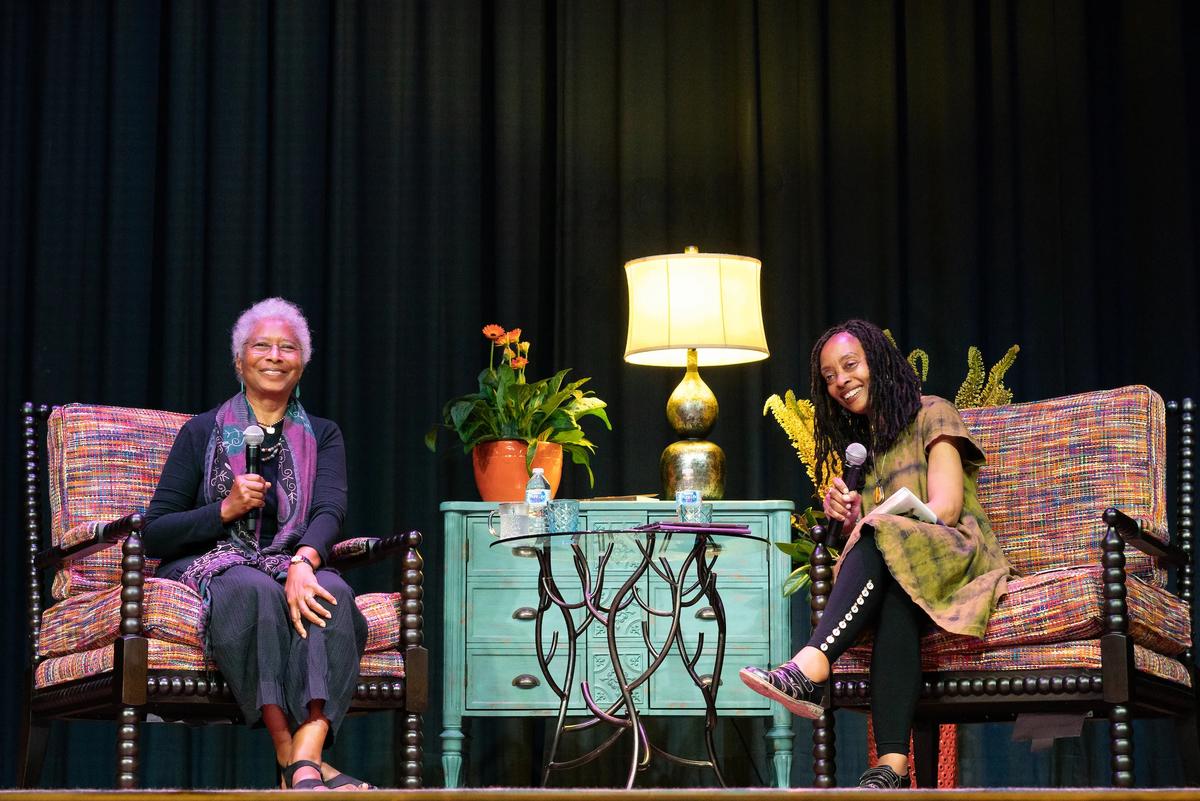
“There was no museum like this one, dedicated to Georgia writers, in which to feel at home. Now there is one!”
AliceWalkerandValerieBoyd atAW75BirthdayCelebration HostedbyGeorgiaWritersMuseum
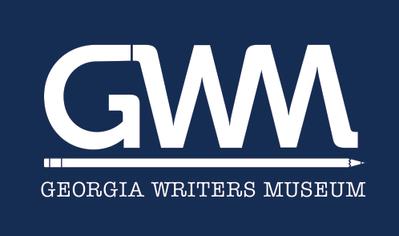
109S.JeffersonAve.
Eatonton,GA31024
706.991.5119
georgiawritersmuseum.org
Thursday-Saturday
10am-4pm
DonationsAppreciated



Look in places where writers and readers hang out: Libraries, literary centers, book festivals, and, of course, Georgia Writers Museum!


Check out writing classes and workshops. Colleges and community education centers that offer writing courses may also sponsor writing groups.


Google “Writing groups near me” or search for specific topics, such as “Poetry Writing Groups” or “Mystery Writers Groups.”
Another option is to start your own writing group. I’ll talk about that in a future column!
The Good, the Bad, and the Ugly.
No, I’m not talking about a Clint Eastwood movie, I’m talking about writing groups. Over the years, I’ve attended groups that fit each of those categories. The way I would describe and differentiate them is that a good group is simply one in which you get what you need as a writer, and a bad group is one in which you don’t. An ugly group is one in which some members are so brutal or condescending in their critiques that people not only quit the group, but sometimes even stop writing altogether.
So what should you look for in a writing group?
The first step is to determine what you want and need: supportive feedback? Business and marketing advice? The discipline that comes from turning in work on a regular basis?
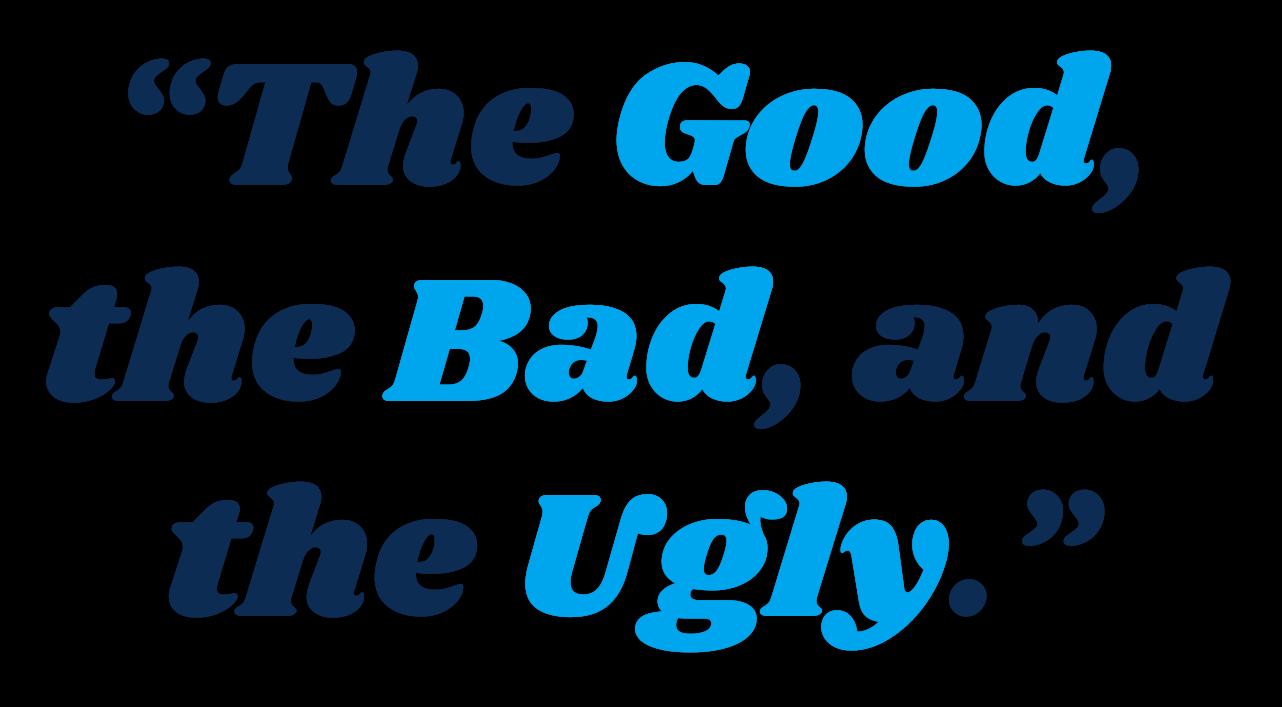
Also consider whether you want a group specific to the genre you’re writing in, or one that’s open to all genres. In a genre-specific group, you’ll get more specialized feedback and advice from writers experienced in the type of writing you do, or want to do. In a group featuring different types of writing, the feedback may be more general, but can be just as valuable.
Years ago, I was the only playwright in a women’s writing group, and whenever anyone started their feedback by saying, “Well, I’m no playwright, but…” I knew two things: One was that I’d better grit my teeth, because I probably wasn’t going to enjoy what they were about to say. The other was that I needed to listen very carefully, because their comments were likely to be spot on, given from the perspective of an audience member rather than a writer.
Once you determine what you want and need from a writing group, you’ll be on your way to finding the best writing group for you!

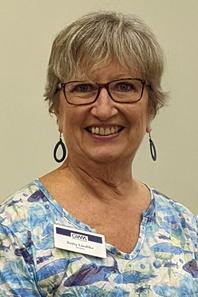
Here is an all-too-common situation for writers: we toil away for years on a project, drafting innumerable drafts, workshopping it, taking it to critique groups, and polishing it until every sentence is sublime. We then send query letters to literary agents and publishers by the score We might get a handful of requests for a full manuscript. But ultimately they decide our book will be too tough a sell because we’re unknown, the book’s too similar to others in the marketplace, it’s too different, or all three yes, it’s crazy.
We decide that we’ll tweak the manuscript or rewrite one more time and try again. More waiting, more disappointment Possibly more near misses. Meanwhile, we don’t write anything else because we’re this close to hitting a homer with our first project
Possibly the worst thing that can happen to some writers is “close but no cigar.” When we put all our efforts into one project at the expense of producing new and possibly better work, we nearly always shortchange ourselves. Nothing should stop us from continuing to pursue leads on our labor of love, but the problem is that we so often only do that rather than writing something else that just might be the next big thing. If you get a two-book deal with the new one, you already have a viable candidate for book number two ready to submit.
Let it go, folks, and write something even better next time. Maybe in this way you’ll find a home for both projects.
George Weinstein is the twiceformer President and current Executive Director of the historic Atlanta Writers Club (AWC), which was founded in 1914

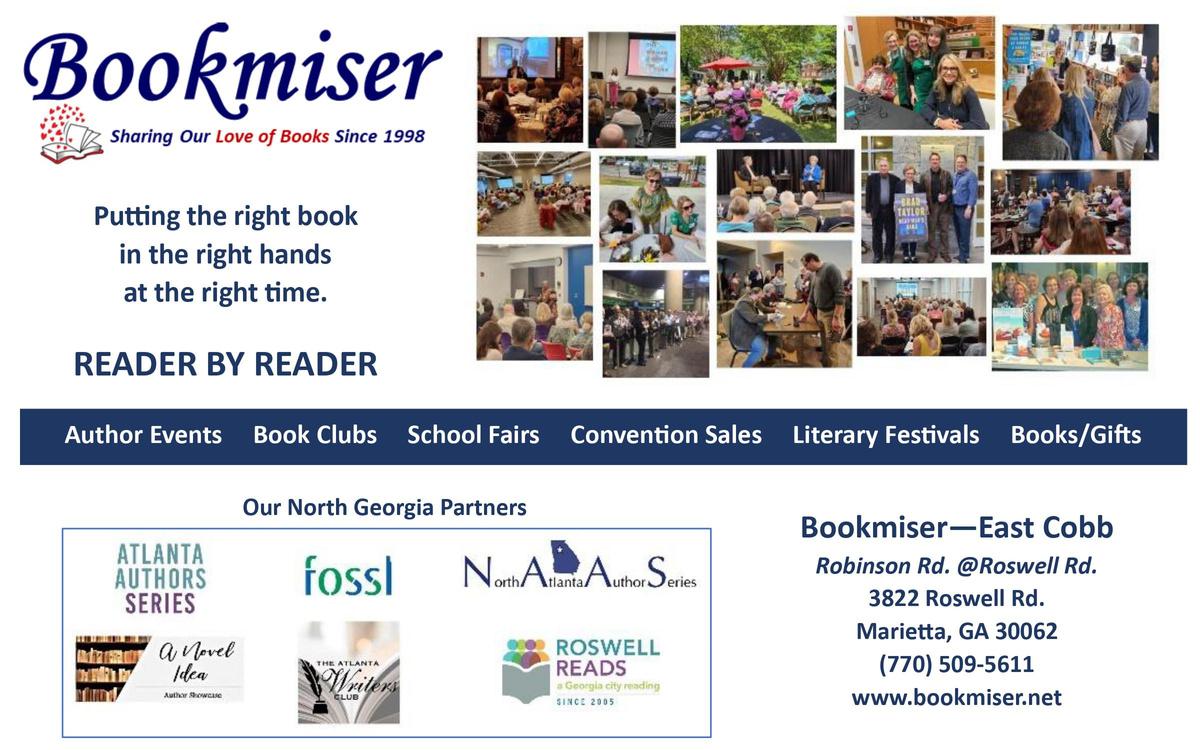




A writing prompt is a word, phrase, or sentence used as a catalyst to creativity. Many new authors find it helpful for getting unstuck when experiencing writer’s block. Each issue of Page Turner will provide suggested writing prompts by Distinguished Georgia Authors.
Try this suggestion by John T. Edge:
Describe your day to come as a weather pattern. What’s your forecast? Lean into metaphors and similes. What’s your barometric pressure? What sort of front will soon move through? When will the sun shine again?
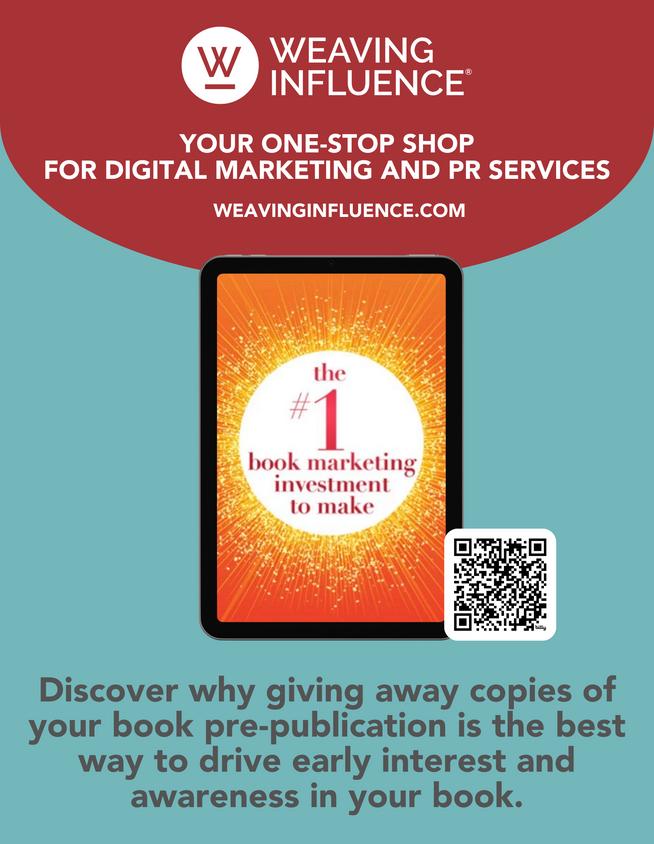

John T. Edge has hosted the television show TrueSouth since 2018 He is a contributing editor at Garden & Gun. The winner of four James Beard Foundation awards, he twice won Beard’s M.F.K. Fisher Distinguished Writing Award. John holds an MA in Southern Studies from the University of Mississippi, an MFA in Creative Nonfiction from Goucher College, and serves as a distinguished visiting professor in the MFA in Narrative Nonfiction program at the University of Georgia. He has written over a dozen books, including Southern Belly and The Potlikker Papers.

9 DISTINGUISHED GEORGIA WRITERS’ BIRTHDAYS
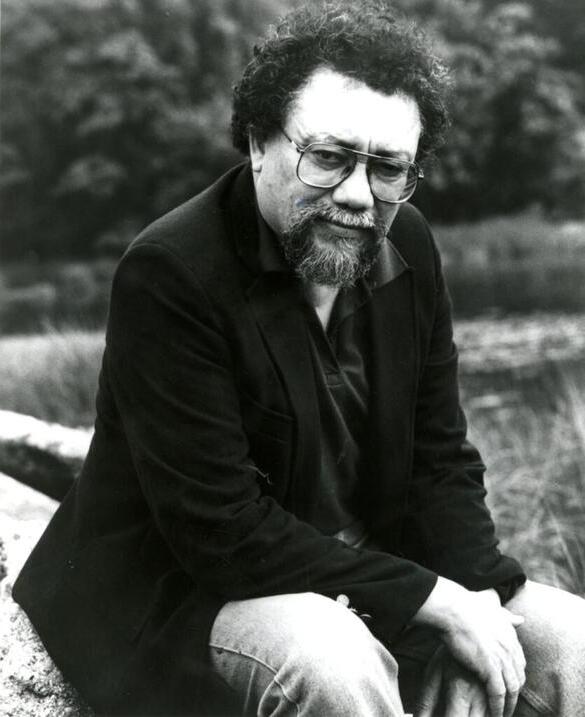
Apr 13
Apr 14
Apr 26
May 23
May 31
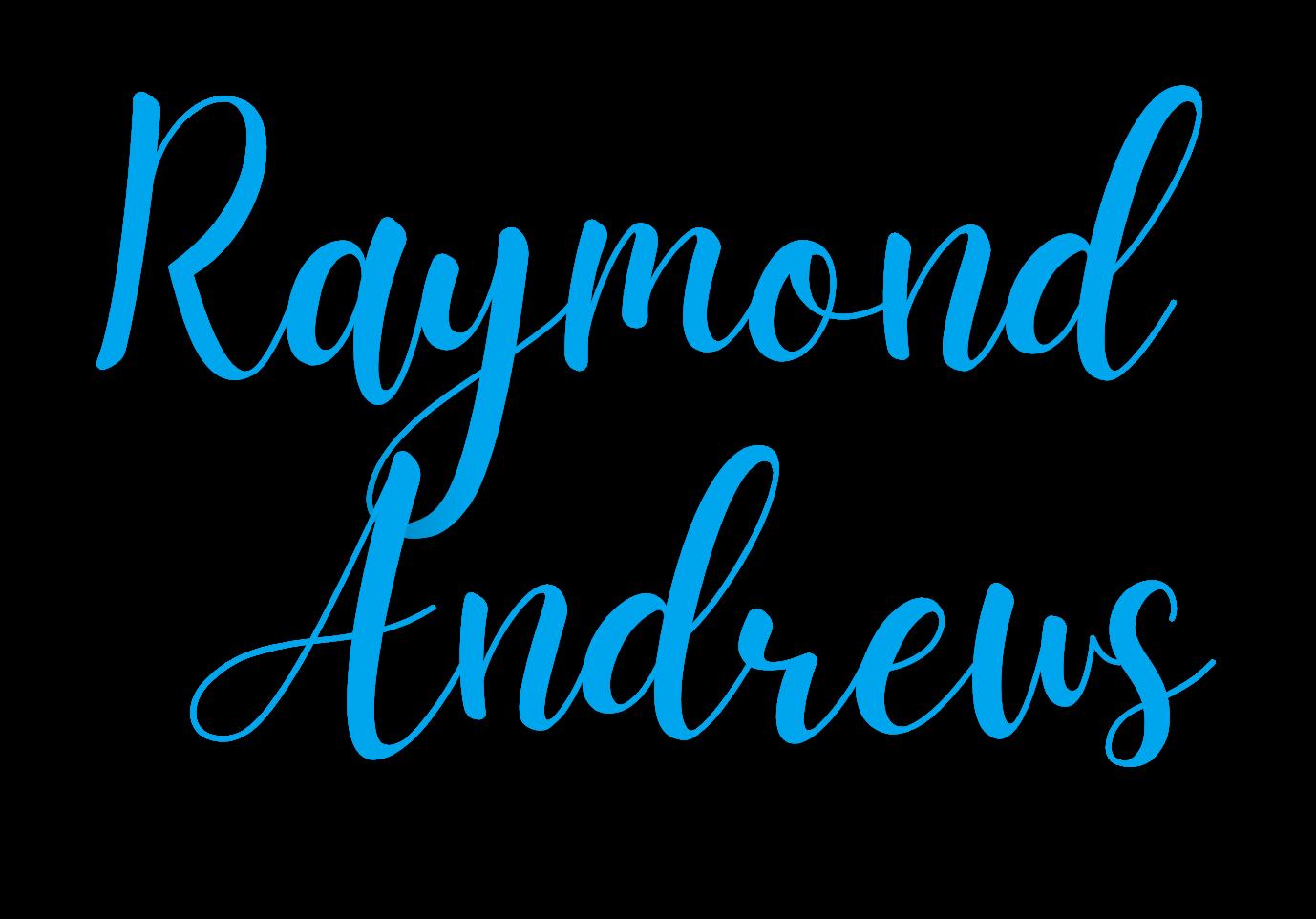
June 6, 1934
Author of: Appalachee Red, Baby Sweet’s, The Last Radio Baby, and more!
James Cobb (1947) Georgia Odyssey; Away Down South
Jericho Brown (1976) The Tradition; Please; The New Testament
Natasha Trethewey (1966) Native Guard; Monument; Beyond Katrina
Celestine Sibley (1914) Children, My Children; Peachtree Street, USA
May 24
Henry Grady (1850) The Speeches of Henry W. Grady
Bailey White (1950) Mama Makes Up Her Mind; Quite a Year for Plums
Jun 12
Jun 15
Xhenet Aliu (1978) Brass; Domesticated Wild Things
Julia Franks (1964) Over the Plain Houses; The Say So
In the early days of our country during the tragic era of slavery, many African Americans were not allowed to learn to read or write. Yet, the concept of a signature as a designation of one’s acceptance or approval

Young people today hear in graduation speeches: “Go out into this world and make your mark.” It is spoken as a message of encouragement to live a life of excellence and leave behind a worthy legacy. A book is was very much alive and well. You will that John signed the Declaration of Independence very large signat England’s King could read it his spectacles. African Americans, when required demonstrate acceptance approval, were “Make your mark.” then signed an “X” to a d document. By established law, when a “mark” made by an illiterate signatory was countersigned by a literate witness, it was just as legal as John Hancock’s elaborate signature. Being able to “make your mark” consequently became a source of pride. It telegraphed you were a person, not property.
The phrase, “Make your mark,” became our common expression for being noticed for a contribution or for the achievement of something impressive.

enduring. If you build or grow a crop a barn, it will s the artifacts its existence ultimately are eroded time. But, if a copyrighted en a 13-digit number, it becomes a part of the collection in the of Congress. It only cataloged elved in its physical form, but stored stored in its electronic form. That means your great-great-grandchildren will be able to access and read your book. It is a body of work that has your signature mark on its cover. And, it permanently says to the whole universe that you were here and made a contribution. It everlastingly pronounces that you accomplished a worthy achievement.
When you are at your wit’s end after way too many false starts have filled the trash can by your desk, think of a valued legacy instead of flawless lines. Your genius just may need the proof of your relentless tenacity to emerge and make a mark.
IF YOU ONLY HAVE AN HOUR
To start the Spring season off right, Ellen Whitfield, Vice President of the Nashville-based literary publicity firm Books Forward, shares some thoughts on how and where to invest your precious hours and minutes:
A website provides a static landing page to compile info for potential readers. It is visible to the world, so it should be attractive, easy to use, and include purchase links for all books. Social media is more likely to be viewed by other users on that platform. Different social media platforms have slightly different audiences, and offer varying levels of value, depending on an author’s commitment. TikTok is video-intensive and skews fairly young, so YA authors tend to do


Kim Conrey is the author of the sci-fi romance series Ares Ascending and the urban fantasy, Nicholas Eternal. She was the 2023 Georgia Author of the Year for Romance
byKimConrey&RogerJohnswell there, but finding success can be timeintensive. Facebook has an older audience, and you don’t have to post quite as frequently. Instagram demographics are somewhere in between.
In general, the more time you spend connecting, the better results you’ll see, so treat this like part of the job and schedule a few hour-long blocks, 2-3 days a week, for posting and interacting.
Launch your website and social media accounts as soon as you can get them up and running! An early start lets you keep your audience updated throughout the writing process. Even a month or two before your release can be helpful. Interspersing posts about your book with other interests and tidbits from your life keeps things personal and helps reach more people.
Keep posting consistently throughout your author journey!

Roger Johns is a former corporate lawyer, retired college professor, the author of the Wallace Hartman Mysteries, and the 2018 Georgia Author of the Year for Mystery/Detective.
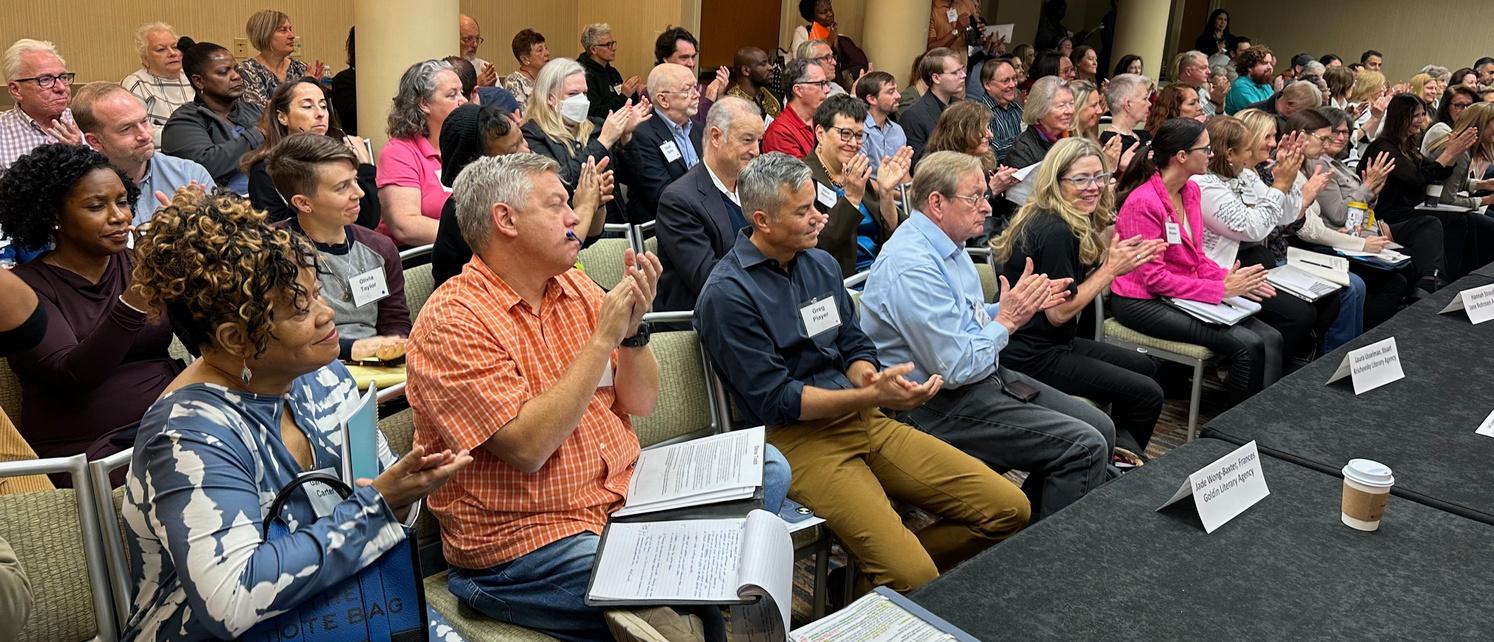
The AWC meets on the 3rd Saturday of each month at GSUDunwoody during the school year and at the Lilburn Library in the summer and features two speakers each time discussing different aspects of the craft and business of writing Online workshops throughout the year provide education about screenwriting, elements of craft, paths to publication, marketing, and more
Members can participate in an annual contest with cash prizes and three conferences per year: two focus on traditional publishing, with agent and publisher meetings, and one is devoted to self-publishing. The AWC also offers online and inperson critique groups around the region, discounts for events, and promotional opportunities for members with books for sale.
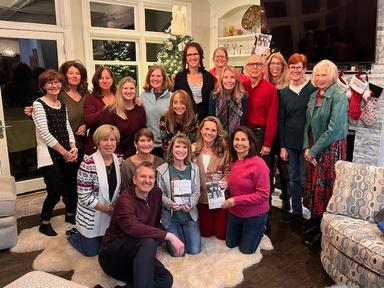
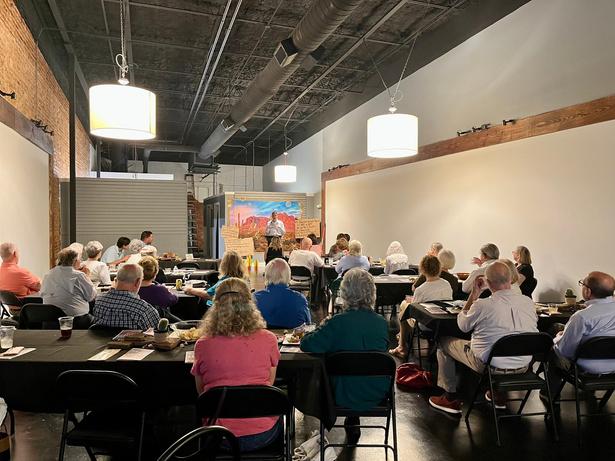
“Reading makes immigrants of us all. It takes us away from home, but more importantly, it finds homes for us everywhere,” wrote British novelist Jean Rhys. It is this gypsy spirit in the Atlanta Reader’s Club that keeps its members moving to new places of the heart.
“To discuss a book after reading it brings it alive in a new and different way,” says Club founder Amy Evans. “It makes you appreciate what others see and other points of view. It’s really a rare treat!”
The Atlanta Reader’s Club began in early 2018 when Evans finished a graduate degree from Georgia Tech and had many professorrecommended books left over. Rather than donate them, she started a book club. While anyone is welcome, club members are as diverse as the books they read. Most are women in various career stages or newly retired; most have connections to Evans in some way.
The club typically meets monthly on a Wednesday night at various Atlanta locations. They always read a book for Black History Month, Women’s History Month, and a socioeconomic book. The requirement is that a chosen book elicits conversation.
The club also aims to have at least three authors a year join them, although in 2023, they had eight. They try to match a restaurant to the book Lazaro’s in Roswell, for example, when reading Cuban books by Chantel Cleeton.
Evans takes recommendations from the club in the fall and selects books in the winter. “I do a lot of research on the recommendations. I don’t pick too many big names like Where the Crawdads Sing, Lessons in Chemistry, or American Dirt, although they have all made the list. I try to choose books others haven’t read, like There There and Kiss of the Jewel Bird. I love debut novels. But again, the main purpose is to present new ideas and concepts.”
As for a memorable moment, Evans recalled when the group of eight met at Canoe, a pricey restaurant on the Chattahoochee River. They were discussing The Giver of Stars, by Jojo Moyes. When the dinner bill came, they discovered somebody had paid it. Turns out a book and magazine publisher seated nearby had overheard their discussion. He mistakenly thought one member of their group was Jojo! The fact that they were discussing real books inspired him to buy their meal. “That surprise has not happened again,” Evans adds.
The Oconee River is 220 miles long and flows through two man-made lakes: Lake Oconee and Lake Sinclair. Its basin lies mainly on Muscogee (Creek) Native American land, and it gets its name from the anglicized Muscogee word Okvni, meaning “born from water.” Its water has spawned some of the best fishing in the South, and its banks have birthed some of the greatest authors of America. What follows is a brief profile of nine distinguished Georgia writers who lived and wrote within 30 miles of the Oconee River near the two lakes.
Alice Walker (1 mile from the Oconee River) was born in 1944, in Eatonton, Georgia. She was the eighth and youngest child of African American sharecropper parents. Despite a childhood of racial injustice and poverty, she graduated valedictorian from Butler-Baker High School, attended Spelman College, and graduated from Sarah Lawrence College in New York. She returned south and joined the Civil Rights Movement in Mississippi. Walker’s first book of poetry, Once, appeared in 1968, and her first novel, The Third Life of Grange Copeland, in 1970. Her most popular novel, The Color Purple, was published in 1982 and won a National Book Award and the Pulitzer Prize for Fiction The book was adapted into a movie (1985 & 2023) and a Broadway play (2005) Alice has published over 35 books.
Flannery O’Connor (5 miles) wrote the majority of her works from Andalusia, her mother’s family farm in Milledgeville, Georgia. Flannery was born 160 miles away in coastal Savannah, Georgia, in 1925. At an early age she was deemed peculiar by her family and friends. An avid reader, she critiqued the children’s books she read as a child. Following her father’s untimely death, she and her mother moved to Milledgeville. Flannery graduated from Georgia State College for Women (1945) and completed a master’s degree from the prestigious Iowa Writers’ Workshop at the University of Iowa. Through the influence of mentors who recognized her unique writing genius, she began publishing short stories and books, including Wise Blood and A Good Man is Hard to Find. In 1950, at 25 years old, Flannery returned to Milledgeville. She had contracted lupus, the same disease that took her father’s life. She spent the next thirteen years at Andalusia, writing the majority of herworksthere.Shediedatage39.
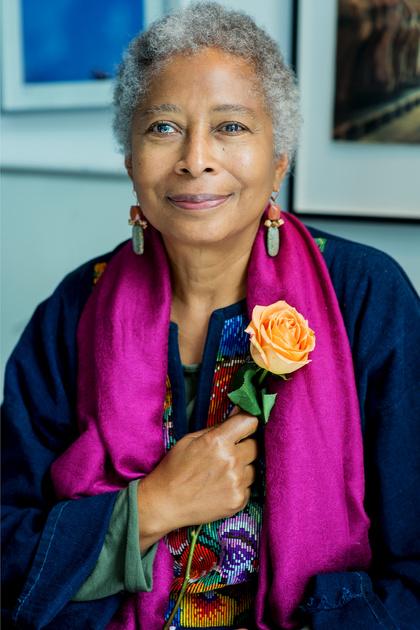
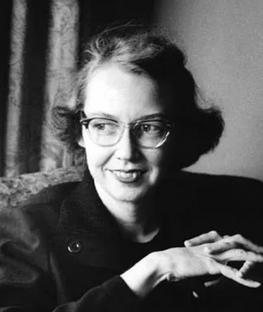
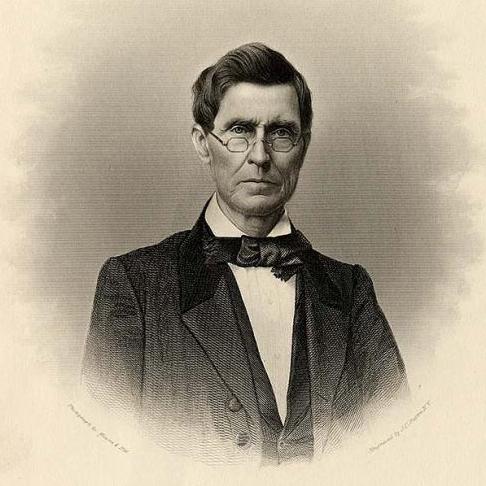

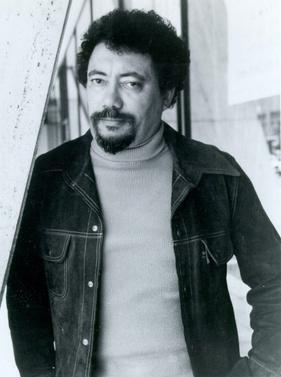
Augustus Longstreet (5 miles) represented Greene County in the Georgia General Assembly (1821) and served as the judge of the Superior Court of the Ocmulgee Judicial Circuit. Augustus is the only Distinguished Georgia Writer born in the 18th century. Born in Augusta, Georgia, in 1790, he went on to earn a degree from Yale University and studied law in Litchfield, Connecticut. He rose to fame as a lawyer in Greensboro, Georgia, and his experiences as a lawyer and traveling judge became the foundation for his book, Georgia Scenes, Characters, Incidents, Etc. in the First Half Century of the Republic This was the first work of literary fiction produced in Georgia. Following his judgeship and his son’s untimely death, Augustus joined the Methodist church as a traveling minister, and later served as President of Emory College (1840-44). Augustus was a vocal defender of slavery, and his ideals played an active role in the splitting of the Methodist church. It took 100 years for them to reunify.Augustusdiedathishomein1870.
Joel Chandler Harris (8 miles) was born in 1845 in downtown Eatonton, Georgia. At 16 years old, he was hired as a typesetter for The Countryman newspaper on nearby Turnwold Plantation. His four years at Turnwold set the stage for the rest of his life. Plantation owner, Joseph Turner, gave him full access to his library, where Harris read the classics, many for the first time. At other times, Joel would listen to the stories told by George Terrell and other enslaved people at Turnwold. Here, he learned the Brer Rabbit folktales and the newspaper trade For the next 10 years Joel worked for a variety of newspapers, finally reaching the Atlanta Constitution in 1876 Joel wrote on many topics, but his most popular was his serial retelling of the Brer Rabbit folktales in each day’s paper. In 1880, Joel published his first collection of stories, which sold 10,000 copies in four months. He went on to retell over 180 Brer Rabbit stories, and eventually retired from the Atlanta Constitution in 1906. Joel passed away at his home, The Wren’s Nest, in Atlanta in 1908.
Raymond Andrews (11 miles) was born in 1934, in Plainview, Georgia, the fourth of ten children of African American sharecropper parents. Until he was 15, Raymond worked in the cotton fields and peach orchards of Morgan County, where he attended a segregated school. At 15 years old, Raymond followed his oldest brother, Benny, to Atlanta. They stayed at the Butler Street YMCA. By night, Raymond earned his high school diploma from Booker T. Washington High School, and worked as a hospital orderly during the day. He later spent four years in the Air Force, and a year at Michigan State before moving to New York City (19581984). During this time, he published his first story in a 1966 issue of Sports Illustrated, and his first book, Appalachee Red (1978), received a James Baldwin Prize for fiction In 1984, Raymond returned to Georgia and lived just outside of Athens In all, he wrote six books, including one published after his untimely death in 1991
Jean Toomer (11 miles) wrote his only novel, Cane (1923), in Sparta, Georgia. Born to wealthy parents in the nation’s capital in 1894, his mixed-race heritage led him on a journey to self-discovery. Raised by his maternal grandparents (former Louisiana Governor and Mrs. PBS Pinchback), Jean attended several colleges before rejecting the idea of a college degree in favor of a writing career. In the fall of 1921, he accepted an eight-week position as the substitute principal at the Sparta Agricultural and Industrial Institute. Sparta set the stage for Jean’s novel, inspired by the landscape, African American voices, and the interracial interactions in the Jim Crow agricultural town. Jean returned north and continued writing until his death in Pennsylvaniain1967.
Sidney Lanier (12 miles) was the president of the literary society at Oglethorpe University’s literary society, as a freshman. He graduated from the original Milledgeville campus at 18 years old. Four years later, he followed his older brother into service during the Civil War. In the last year of the War, Sidney was captured and incarcerated in a military prison in Maryland. He was eventually released, and following the war years, Sidney published his first and only novel, Tiger-Lilies (1867). He worked multiple jobs: law clerk, schoolteacher, church organist, and hotelier, but finally, in 1873, he accepted a position as first flutist in the Peabody Orchestra in Baltimore, Maryland Through the 1870s he wrote his most notable works of poetry, The Song of the Chattahoochee and The Marshes of Glynn In 1881, Sidney passed away from tuberculosis, which he developed as a prisoner of war. He was only 39 years old.
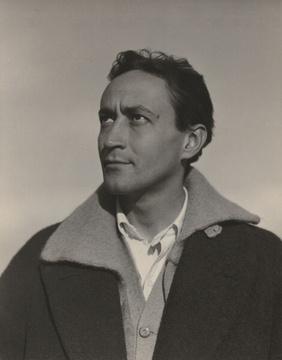
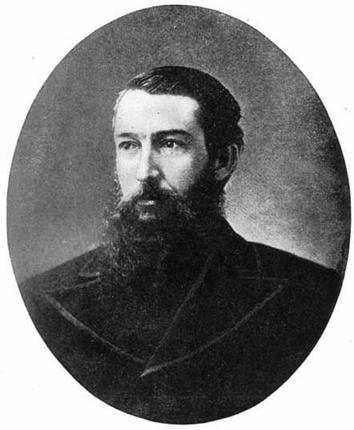
Philip Lee Williams (13 miles) was born in 1950 and raised in Madison, Georgia. At 22 years old, he graduated from the University of Georgia with a degree in Journalism. He was an associate editor at the Madisonian and then Editor of the Athens Observer. After a decade in journalism, he transferred to the University of Georgia where he worked in a variety of writing positions for over 25 years. During this time and into retirement, he has published 21 volumes of fiction, poetry, and essays. Phil has received the Townsend Prize for Fiction, the Governor’s Award in the Humanities, and is a member of the Georgia Writers Hall of Fame. He was also named Georgia Author of the Year four times in three different categories. In addition, he has been named a winner of the Georgia Writers Association Lifetime Achievement Award


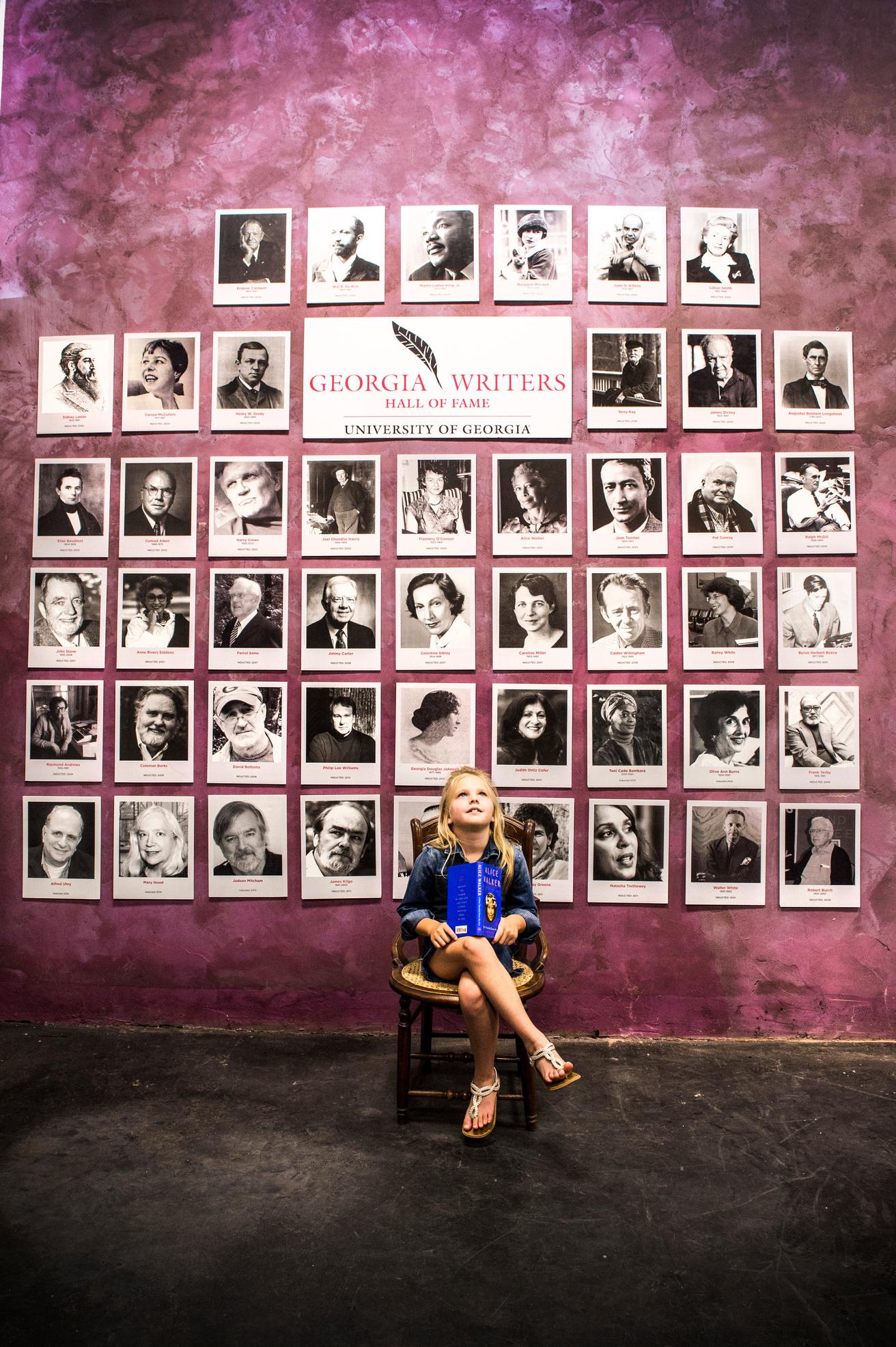
John T. Edge (20 miles) was born in 1962 in Clinton, Georgia. He received his master’s degree at the University of Mississippi in Southern Studies (2002). While working on his degree, he founded the Southern Foodways Alliance, “dedicated to the documentation and celebration of the diverse food cultures of the American South.” In 2012, he completed an MFA in Creative Non-Fiction from Goucher College, and has written / edited more than a dozen works John has received four James Beard Foundation awards and the M F K Fisher Distinguished Writing Award for excellence in culinary writing. Since then, John has hosted the television show TrueSouth (SEC Network and ESPN) and is a contributing editor for Garden & Gun magazine. Since 2015, John has worked with the University of Georgia’s MFA Program in Narrative Media Writing.
“Water is the driving force of all of nature,” wrote Leonardo de Vinci One could rationalize nine great literary forces living in the same geography as merely the accident of birth or the coincidence of place, but maybe there really is something in the water
The Distinguished Georgia Authors Wall is displayed at Georgia Writers Museum. It provides a way to commemorate Georgia’s most celebrated writers. Currently, one hundred authors are included. To be a Distinguished Georgia Author, a writer must receive one or more of Georgia’s most prestigious awards: induction into the Georgia Writers Hall of Fame, recipient of the Georgia Writers Association’s Lifetime Achievement Award, or recipient of the Townsend Prize for Fiction. Three of the 100 authors— Terry Kay, Philip Lee Williams, and Dr. Ferrol Sams—have received all three awards.


Let’s start with a truth. Book buyers rarely buy books they never heard of. And your publisher will not be selling your book for you. So, how do you inform the marketplace about your new creation? We’ll cover this giant topic in three parts: your storefront, your connections, and your affirmations.
Your storefront is your brand communication with your marketplace. For authors, that platform is a killer website where book buyers can learn about your book and perhaps order a copy. Write a regular short blog for your website to give readers a reason to come back. Make sure your email signature block mentions your website address and book information, right along with your email address. Make certain all your contact information is at the end of your book. Don’t make readers have to complete a form just to reach you.
Personalize your website by including lots of pictures and videos. Consider getting a memorable email address instead of a Gmail or Yahoo address. JohnG@gmail.com is not promotional; john@johngrisham.com carries a totally different message.
Once you have your own domain (from GoDaddy or Web.com) you can build an inexpensive website. Create a short newsletter that goes to your email list. It makes readers feel important.
Do book readings. Get on local media. Join social media networks like Facebook, Twitter, Instagram, and LinkedIn. Post about your book every day on these sites. Set up your own YouTube channel and post short videos about your book. Videos are powerful yet simple to create with a smartphone and inexpensive video editing apps (like Wondershare Filmora and Vimeo). Include videos in your e-newsletters and send them out as e-blasts to your email list.
Your storefront needs to be a marketplace branding tool for the unique you. Make sure it reflects your mission, core values, and specialness. Your book deserves it.


Julia Collier Harris was a pioneering female journalist whose editorials won a 1926 Pulitzer Prize for the Columbus Enquirer-Sun, which she co-owned with her husband. It was the first time Georgians were awarded a Pulitzer.
If her surname seems familiar, there’s a good reason: She was the daughter-inlaw of Joel Chandler Harris of Uncle Remus renown.
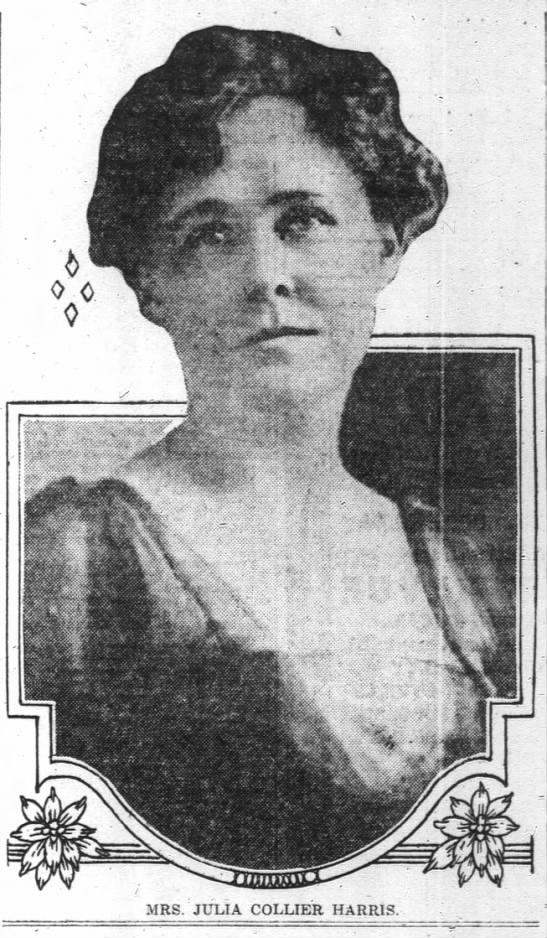
Harris came from a notable family herself, the Colliers, an old Atlanta clan for whom streets and neighborhoods are named. Her father had been mayor of Atlanta.
In the late 1890s, she married Julian LaRose Harris, the eldest son of the famous Atlanta journalist and an Atlanta Constitution staffer himself.
She started writing for the paper and continued after she and her husband moved to New York, where they worked for the Herald. She found time in 1918 to write the first biography of her father-in-law, The Life and Letters of Joel Chandler Harris
When her husband was posted to Paris, Harris continued to write for the Herald syndicate and covered the signing of the Treaty of Versailles. Back in Georgia after the war, the couple bought an interest in the Columbus paper—then outright ownership—and crusaded against lynching, the Ku Klux Klan, and efforts to stop the teaching of evolution in public schools.
The Harrises went to Tennessee to cover the 1925 trial of John Scopes for teaching evolution in the classroom. Their Pulitzer citation mentioned their “brave and energetic” stands against ignorance and for racial justice. In accepting the award, Julian Harris said of his wife:
She is a trained newspaper woman, She is a trained newspaper woman, and as fearless as she is intelligent, and as fearless as she is intelligent, unyielding in the face of injustice of unyielding in the face of injustice of any kind, and a constant any kind, and a constant iinspiration. nspiration.
He also said she was the better writer. The crusading took its toll as the Harrises lost advertising in Columbus and had to move on. They had stints at The Atlanta Constitution and The Chattanooga Times during the 1930s, and Julian Harris briefly worked as an Atlanta correspondent for The New York Times.
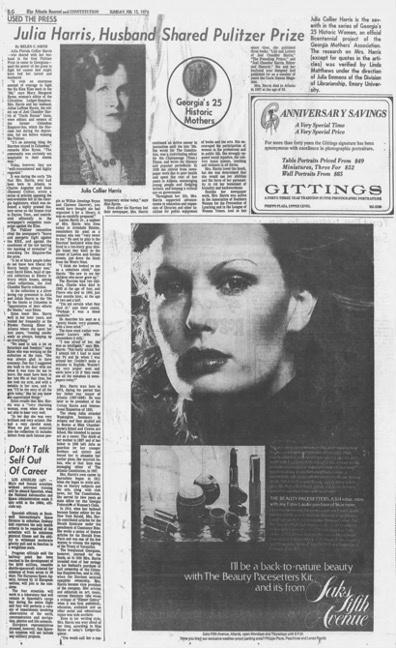
But poor health forced both to retire from journalism. They died in Atlanta during the 1960s.

Jim Auchmutey is a former writer and editor for The Atlanta Journal-Constitution, specializing in stories about the South and its history and culture

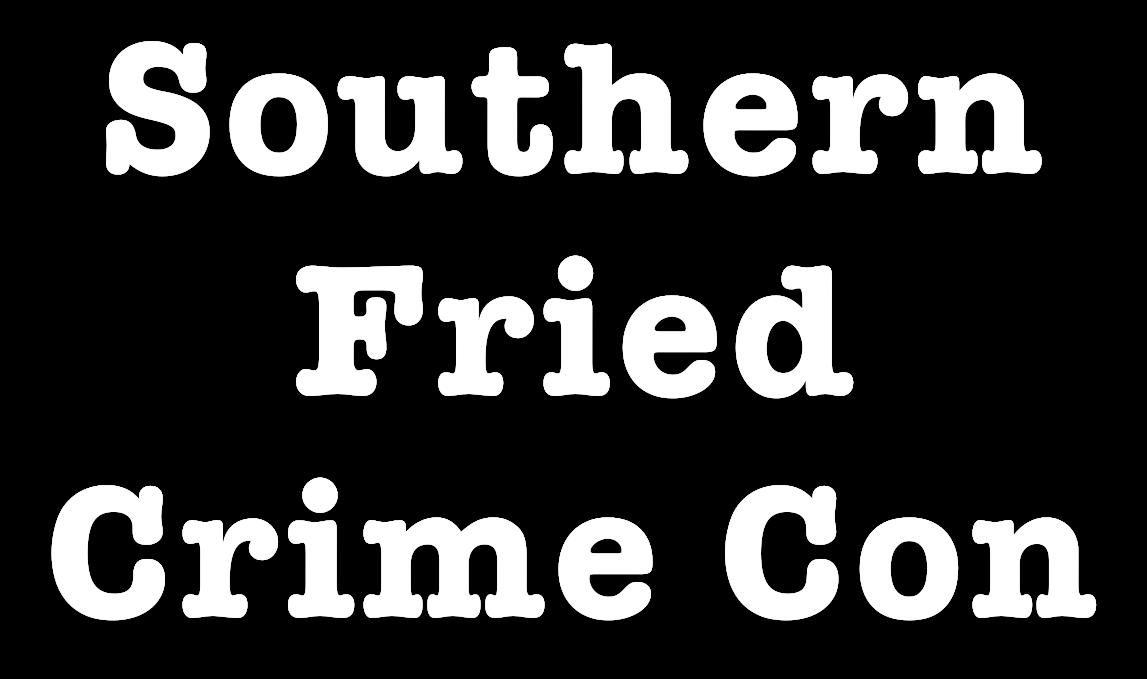
Sept.26-29,2024

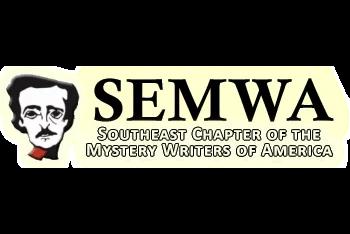
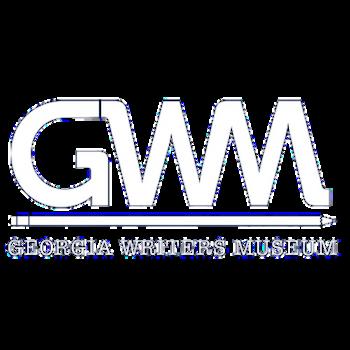
georgiawritersmuseum.org/southern-fried-crime-con/
Some things ought to exist outside capitalism, and wildness should be one of them.”
—Janisse Ray
Everywhere I go I'm asked if I think the university stifles writers. My opinion is that they don't stifle enough of them. There's many a best-seller that could have been prevented by a good teacher.”
Flannery O’ConnorI am about the extent of a tenth of a gnat’s eyebrow better.”
—Joel Chandler Harris’ last words when asked how he was doing


Every other year a panel of judges awards the Townsend Prize for Fiction to an outstanding novel or short story collection published by a Georgia writer during the past two years. The award is named for Jim Townsend, the founding editor of Atlanta magazine, the associate editor of Atlanta Weekly Magazine (of the Atlanta JournalConstitution), and an early mentor to such Atlanta writers as Pat Conroy, Terry Kay, William Diehl, and Anne Rivers Siddons
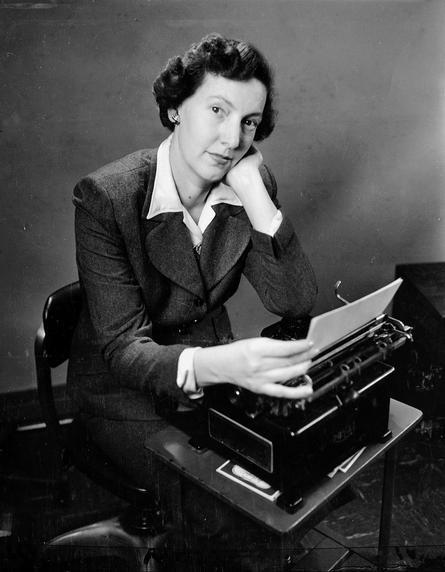
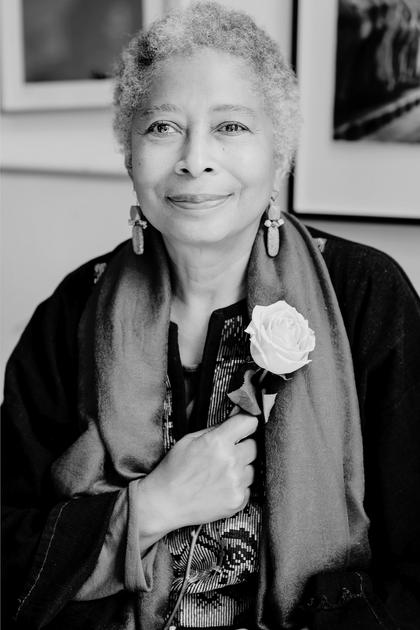
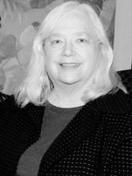
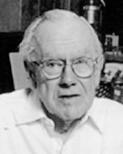


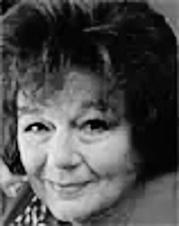
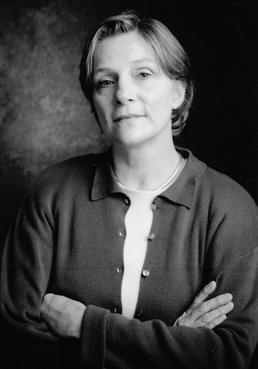
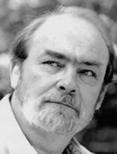

Celestine Sibley, Children, My Children
Alice Walker, The Color Purple
Philip Lee Williams, The Heart of a Distant Forest
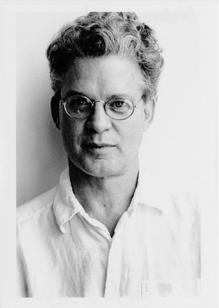
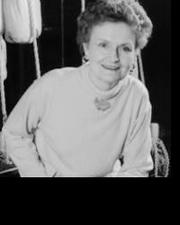
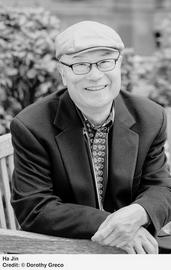




Mary Hood, And Venus Is Blue
Sara Flanigan, Alice
Charlie Smith, The Lives of the Dead
Ferrol Sams, When All the World Was Young
Pam Durban, The Laughing Place
JoAllen Bradham, Some Personal Papers
Judson Mitcham, The Sweet Everlasting Ha Jin, The Bridegroom
James Kilgo, Daughter of My People
Terry Kay, The Valley of Light
Judson Mitcham, Sabbath Creek
Renee Dodd, A Cabinet of Wonders

Kathryn Stockett, The Help
Thomas Mullen, The Many Deaths of the Firefly Brothers
Mary Hood, A Clear View of the Southern Sky
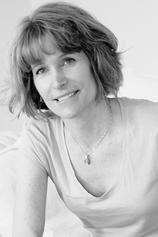


Julia Franks, Over the Plain Houses
Xhenet Aliu, Brass
Sanjena Sathian, Gold Diggers
The professional Julia Franks is the author of two critically acclaimed novels, The Say So and Over the Plain Houses, a debut that was included in many “best of” lists, including NPR’s Notable Books of 2016. Her work has received a half dozen prestigious literary prizes (The Townsend Prize for Fiction, The Thomas Wolfe Award, The Southern Book Prize, Georgia Author of the Year, The IPPY Gold, and An Earbuds Award from Library Journal’s Audiofiles Magazine). She has also published stories in The New York Times, Ms. Magazine, Lit Hub, and The Bitter Southerner, among other places.
The personal Julia Franks has her roots in the Southeastern mountains and has spent years kayaking the rivers and creeks there. An Army brat, she lived in lots of places. She did an undergraduate degree in English literature at Vassar and a master’s degree in linguistics at Columbia. She taught in Caracas, Venezuela, before moving to Atlanta in 1997, and taught English at Atlanta International School and The Lovett School. She created loosecanon.com, a web-based tool to help teachers organize independent reading of their students while creating a culture of excitement around books. She lives with her husband in Decatur.
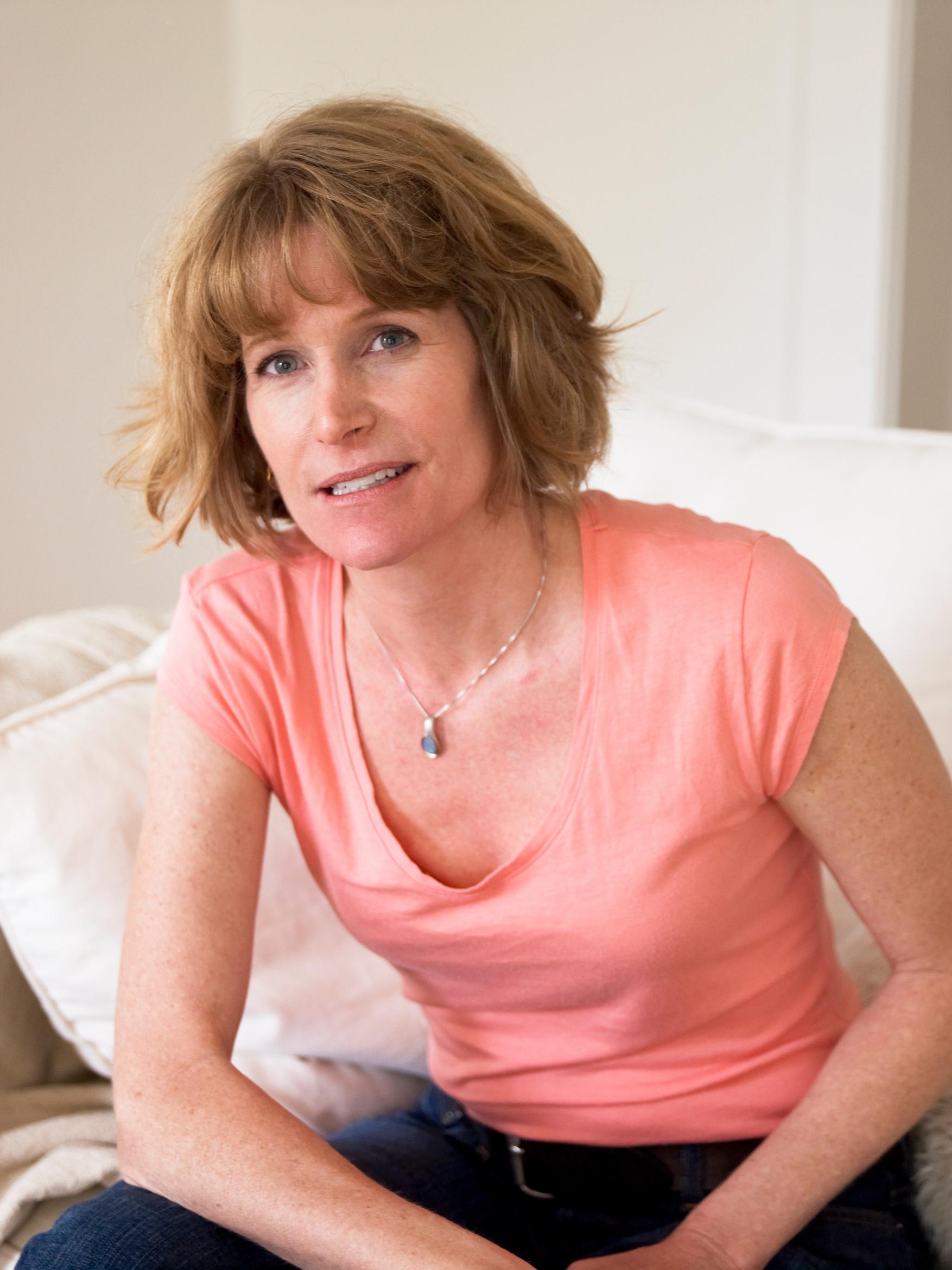
I love writing. I think human beings have a deep universal need to make things,
whether that thing is a piece of furniture or a web application. I suspect we’ve all felt the satisfaction that comes with that very human process, creating something from conception to finish.” This declaration was the opening salvo in my interview with Julia Franks. She continues, “It is all about imagination, creative problem-solving, and follow-through, about the satisfaction that comes from completing your vision. The difference is that I probably have more skill at creating a novel than I would at weaving a tapestry or building a boat. But it comes down to the same universal creative impulse.”

A conversation with Julia Franks is all white water—refreshingly stimulating and unexpectedly adventurous. Her answers to queries source a fertile groundwater of ingenuity coupled with a strong current of passion. It is obvious she has found her life purpose as an author and is gripping tightly on every ounce of insight she can muster. No formulaic writer, she lets the literary spirit flow where it needs to take her as she lets her readers join her on the ride. Here are a few soundbites from our conversation.
What do you consider the primary source of inspiration for your work?
People! People are endlessly fascinating. I just finished a two-week river expedition in the Grand Canyon with 16 other people, where we were all dependent upon one another for navigating the river setting safely and managing the dangers of the cold and cooking and setting camp, and boy, you learn a lot about people in situations like that. It was a great reminder of how endlessly complicated, fragile, and interdependent we all are. There’s no place to hide on a trip like that. I’m reminded of something James McBride said: that if you want to write about people, you must spend time out there in the world with them. You can’t squirrel yourself away in some garret.
Your novels are about women seeking escape and coping with doubt one dealing with a challenging husband where witchcraft is a backdrop, and one dealing with out-of-wedlock pregnancy when family secrets become a backdrop. What intrigues you about this genre and theme? I started writing because of an unplanned pregnancy in college For complicated reasons, I chose to have the baby and relinquish him for adoption. Not easy, I thought, but doable. Right? It’s an old, old fable: that those who have abortions will be traumatized, and that those who surrender children for adoption will somehow be (ahem) ...improved. The research, of course, shows the opposite: that most people who have abortions are not traumatized, and that most people who relinquish children for adoption grieve for decades. Pregnancy hormones transform a woman mentally, emotionally, and physiologically. That transformation, which gets more extreme week by week, helps women bond with the growing fetus.
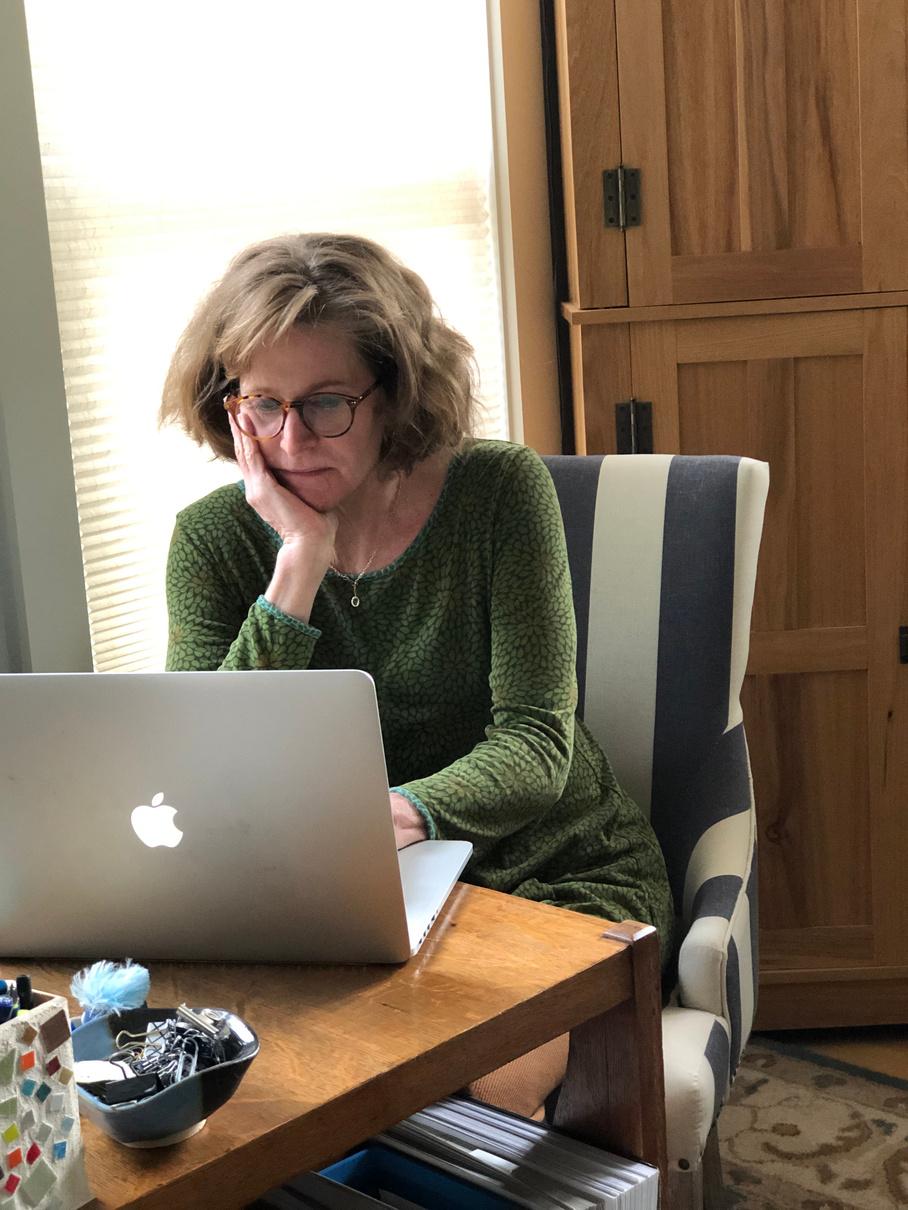
But I was too young to take any of that into account. I had simplistic ideas about the emotional investment involved in gestating a baby. As you can imagine, the decision upended my life.
So began my research and my writing life. It felt to me as if our whole country had simplistic ideas about women’s choices. The novel, The Say So, which begins in a Charlotte maternity home in 1959, came out of that research Parts of Over the Plain Houses did, too.
Since then I’ve written a lot about women’s stories. And like every other human, I’m still struggling with that most poignant of burdens: how to bridge the gap. Everything I write comes from that need and turns on the one plot point: that no matter how hard we try, we’ll never be able to close that chasm, never be able to make ourselves known to our own unknowable loved ones much less to the rest of the squabbling world.
But we keep trying.
And Julia Frank’s high-spirited run continues ★
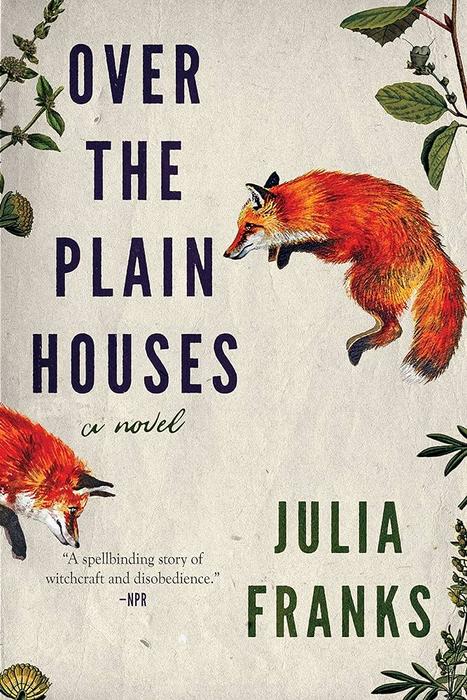
This is a wonderful book….Over the Plain Houses is worthy of both our wonder and our admiration.
The Georgia Author of the Year Committee
It’s 1939, and the federal government has sent USDA agent Virginia Furman into the North Carolina mountains to instruct families on modernizing their homes and farms. She meets Irenie Lambey, who is immediately drawn to the lady agent’s self-possession. Already, cracks are emerging in Irenie’s fragile marriage to Brodis, an ex-logger turned fundamentalist preacher: She has taken to night ramblings through the woods to escape her husband’s bed, storing strange keepsakes in a mountain cavern. To Brodis, these are all the signs that Irenie is practicing black magic. When Irenie slips back into bed with a kind of supernatural stealth, Brodis senses a certain evil has entered his life, linked to the lady agent, or perhaps to other, more sinister forces. This is the story of a woman intrigued by the possibility of change, escape, and reproductive choice — stalked by a Bible-haunted man who fears his government and stakes his integrity upon an older way of life. As Brodis chases his demons, he brings about a final act of violence that shakes the entire valley.
This book seems like it may have taken 240 years to write. At its best, which is all the time, it summons the smoke-swirling wilderness The startling images she retrieves conjure geologic time…. Franks’ mastery of technical details is daunting.
Atlanta Journal-Constitution
A spellbinding story of witchcraft and disobedience
Carmen Maria Machado for NPR
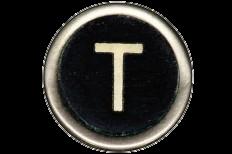
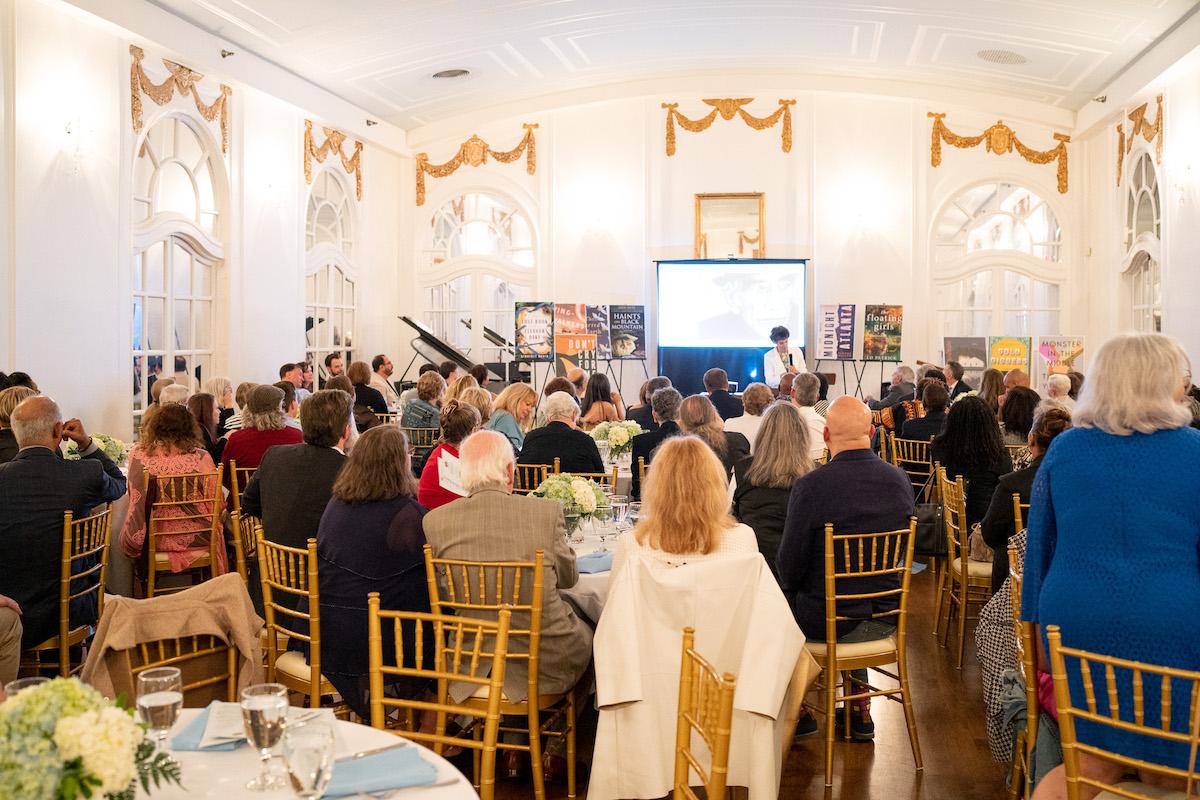

A child’s greatest fear may be abandonment or becoming lost. What will I eat or drink? What is hidden in the world that can hurt me? How can I stay warm when the cold comes? Those questions are at the heart of Janisse Ray’s novel, The Woods of Fannin County, and the book is terrifying yet filled with love and consolation.
Based on a true story, Ray’s astonishing novel tells the story of eight Georgia children, ages three months to ten years, who were abandoned by their parents in a rural shack in foothills of the state’s Blue Ridge Mountains. Ray first heard the story from her father, who was told it from one of the survivors, all of whom had made it out alive after several years and who grew into productive adulthood.
Ray, best-known for her award-winning memoir, Ecology of a Cracker Childhood, began a 10-year journey, interviewing members of the abandoned family and deciding, finally, that it could only be told properly through the lens of fiction. Her new book is her first novel, and it rings with truth, suffering, and sorrow. Rather than have all the grown children tell of their experiences, she creates a fictional character who appears from time to time, one of the brothers who keeps the story moving.
And what a story it is. For four years, the children lived essentially alone, with only occasional visits from their mother. They scoured the hills and woods for anything to eat. They tried to find anyone to take care of them. And yet, in the end, with courage and strength, they survived and endured After they were grown, they spoke of the experience to each other rarely, to others almost never.
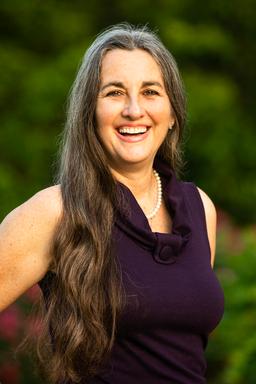
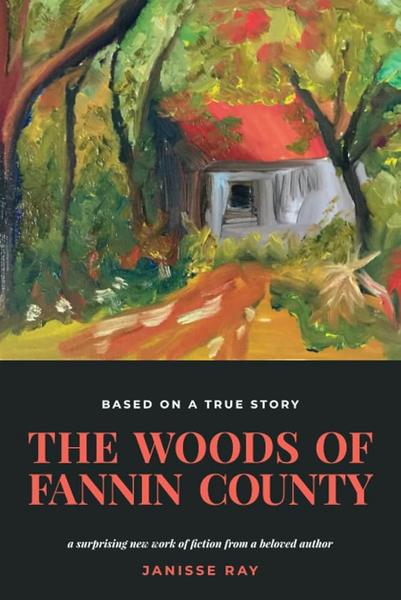
It should come as no surprise that they finally told their story to Janisse Ray, one of Georgia’s finest writers and a member of the Georgia Writers Hall of Fame. And her decision to turn it into a novel gives us a broader lens through which to see and hear what could have been an enduring tragedy.
Instead, the Woods family, as the book’s dust jacket says, “wove a sometimes painful, sometimes jubilant, and always astounding revelation of their abandonment and survival in the Appalachian wilderness.”
But in so many ways, their survival was always on the edge of disaster. Their ultimate rescue reminds one of words Edward Abbey wrote in his masterpiece, Desert Solitaire: A Season in the Wilderness He wrote, “A great thirst is a great joy when quenched in time.”
Janisse Ray, an environmental activist and poet, is the award-winning author of Ecology of a Cracker Childhood. She was inducted into the Georgia Writers Hall of Fame in 2015
For a reader of The Woods of Fannin County, that great thirst is written with strong craft and unforgettable empathy. And when the thirst is quenched, Ray gives us a story to cherish. She gives us something enduring, beautiful, and even hopeful.
Reviewed by Philip Lee Williams, American novelist, poet, and essayist He won the Townsend Prize in 1986. He was inducted into the Georgia Writers Hall of Fame in 2010.

When I was a kid in the 1970s and ’80s, bookstores seemed ubiquitous. My hometown had two independent bookstores at opposite ends of a single shopping center. The mall boasted one chain bookstore after another.
Though I can’t remember the name of my favorite bookstore back then, I can tell you exactly what it looked like. Glass-fronted on two sides, it had a mitered corner so as not to obstruct the view of the treasures inside. All manner of books lay and stood before my family and me once we entered. To our left, dozens of low, square platforms supported glossy coffee-table books with lush photographs and illustrations, neat columns of fiction and nonfiction hardbacks, and stacks of comic books. To our right, books lined row upon row of freestanding shelves and, beyond these, rotating wire racks of mass-market paperbacks.
In a way, interests sections years, job mone that captivated me were more expensive.
I learned to budget and save due to that bookstore. My first serious crushes were on the pretty cashier and several customers— which taught me how to deal with longing, rejection, and heartache.
I went off to college and, during spring break of my freshman year, I returned to find the store had closed, a victim of changing tastes and a sharp-toothed recession. This helped to teach me how to cope with loss.
Now, whenever I visit my local indie bookstores, I still get excited. Maybe I’ll discover something life-changing. I know exactly where I stood when I first felt that thrill of possibility.
George Weinstein is the twice-former President and current Executive Director of the historic Atlanta Writers Club (AWC), which was f d d i 1914


Bookmiser opened its doors as a Marietta used book store in 1998, when used book stores were generally run by owners whose passion was books They collected books lots of books, but highly disorderly books, which made shopping difficult Bookmiser created an organized and clean environment with simplified processes.
Whether ordering a used book online with minimal profit to satisfy a specific customer need, providing homemade eats and drinks at every author event, providing carpooling services for homebound customers, or selecting next reads for prolific readers so that when they walk in the door, their new stack of books is ready to walk out with them, Bookmiser always seeks to go the extra mile for customers.

Walk into the store, and you hear big-band music playing in the background The message is crafted to communicate the store’s motto:

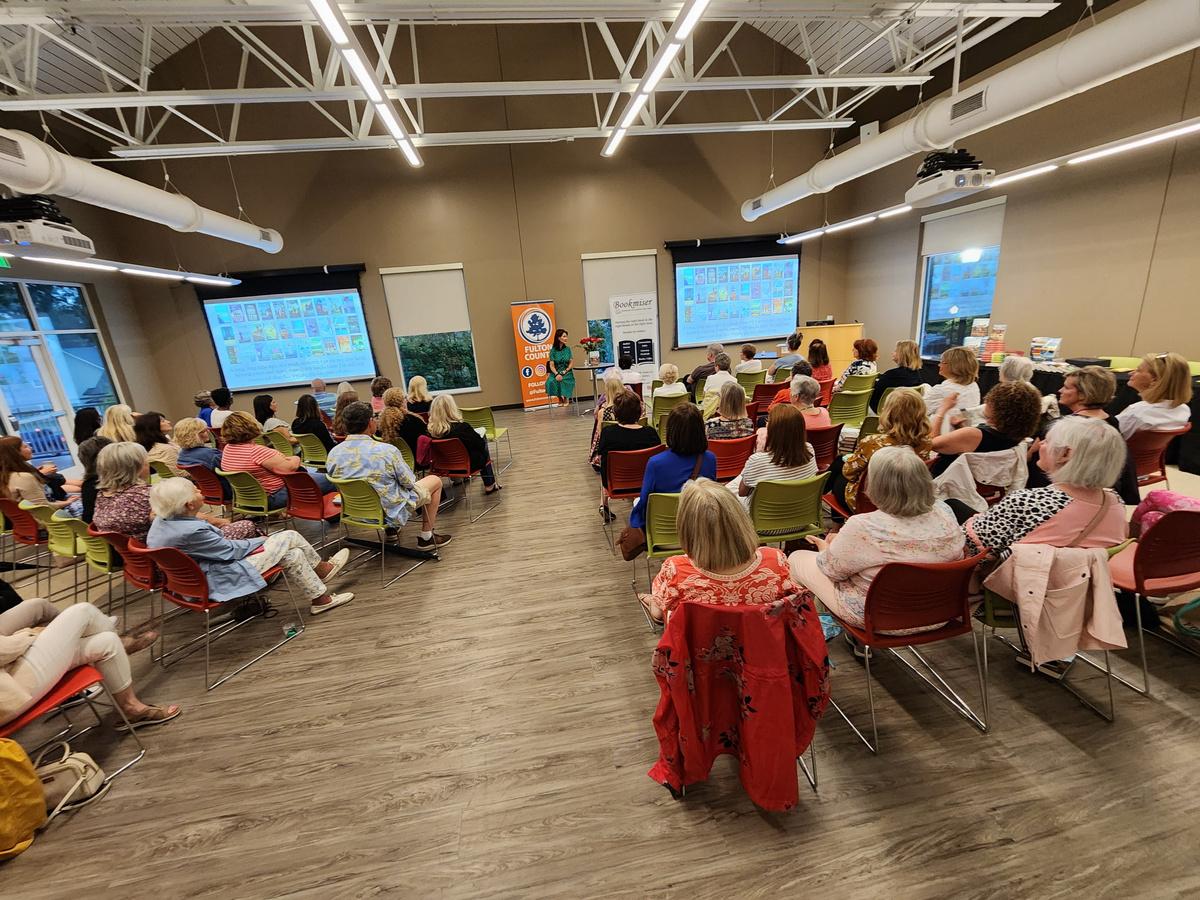
“We remain successful,” says coowner Arnell Gerson, “because we’ve learned to sway with the changing book world. We are still around because of our amazing staff members who, through the years, have shared their passion for books with our customers, and because of our family of amazing customers who have embraced our motto.”
“We cannot predict what lies ahead in the book world,” says co-owner Jim Gerson. “We are still here because we’ve been brave enough to change with the times and strong enough to hold fast to our belief that books truly matter; they change lives. Acknowledging the power of these bound pages, how can we not do everything we can to build our family of readers?”
Most people have the experience of trying to turn over a new leaf—start new behaviors and make them into habits—and then reverting to business as usual. When that happens in life, it’s familiar. When it happens in fiction, it’s frustrating.
I believe we enjoy reading novels because we want to live vicariously through other people managing that difficult transition successfully. We want to see the protagonist characters overcome the beliefs and behaviors that had prevented them from achieving their potential. Because of what they have endured and the odds they’ve beaten, they change for the better and permanently, not just for a while.

George Weinstein is the twice-former President and current Executive Director of the historic Atlanta Writers Club (AWC), which was founded in 1914
by GeorgeWeinsteinWe also want to understand why everybody does everything in a story, so behaviors and events make sense. Unlike in reality—where chaotic actions, coincidences, unanticipated good/bad fortune, and random incidents can improve, upend, or even terminate lives—we feel cheated if such a thing occurs in a novel.
This is why the fictional worlds we read about refrain from throwing outcome-influencing curveballs, and the heroes we’ve rooted for succeed on their own merits and change into better people because of their odyssey. If you want arbitrary, illogical reality, watch the news. If you want a satisfying story, read novels.


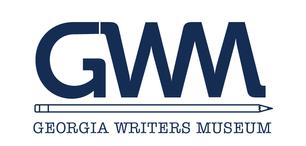
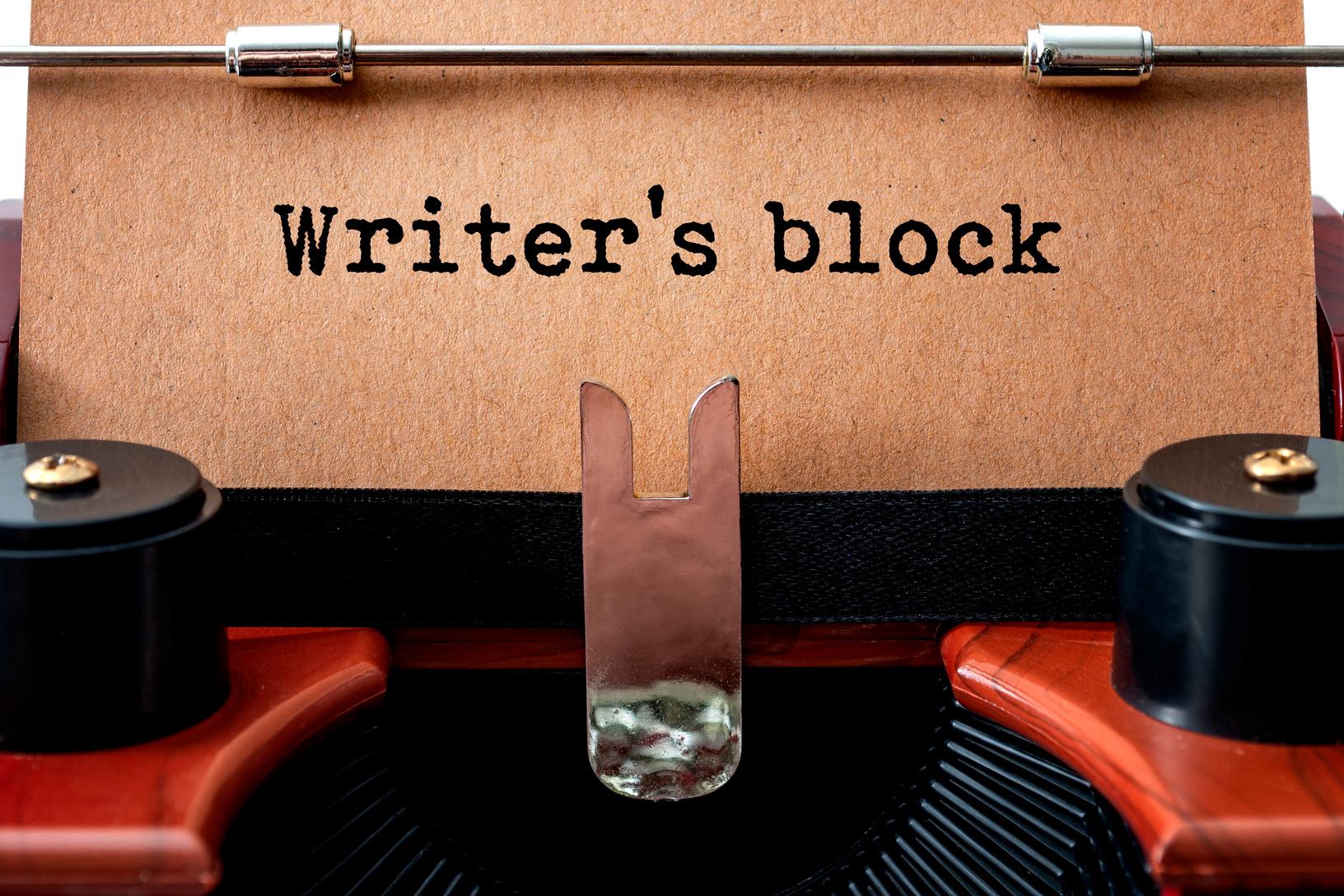
Feedback is the breakfast of budding authors. Positive feedback can make a doubtful author try; negative feedback can make a determined author prove. In 1955, aspiring author Anna Holloway was discouraged by a teacher who gave her a C on a short story because she crafted it around missionaries in Africa. She vowed to become a published author. What happened next is the stuff of raw determination.

Anna Holloway completed her BA and MA in English from the University of WisconsinMadison in the mid-sixties and her PhD in English from Kent State University in 1980. She spent 46 years on the faculty at Fort Valley State University, where she taught writing, literature, and journalism, and served as the advisor to the creative writing club. Still no published book.
She joined the Fort Valley Writers Group, the Broadleaf Writers Association, and the Macon Writers Group She attended writing workshops at Georgia Writers Museum and participates in Chad R Allen’s BookCamp For fifteen years, she worked on Looking for Jazz: A Memoir about the Black College and Southern Town That Changed My Life The book was published last July
We asked Anna, “What was your biggest obstacle to becoming a published author?” Her answer is often repeated to wannabe authors. “You must learn to deal with rejection. I spent over a decade on this manuscript and when I was within sight of publishing, I sent it to several university presses. It was rejected. After about 20 rejections from agents, I decided to self-publish, first on Amazon and then on IngramSpark.”
Anna is far from done. Her next book, Be Sure to Wave, is a story of her interracial family’s life mainly during the 1980s. Having pioneered her way to her first published book, she is counting on the next one requiring a bit less heavy lifting

X. Fang’s Dim Sum Palace is a celebration of delicious food and delightful dreams. Liddy gets to go to the Dim Sum Palace tomorrow and she can’t help but imagine the palace, the chefs, and most importantly, the Empress. But—oh no!—Liddy accidentally falls into a bowl of dough and must escape becoming a dumpling herself and being fed to the Empress.
The story in Dim Sum Palace encourages readers of all ages—but particularly those ages 3 to 7—to follow their imaginations and try new foods and experiences. At the heart of this adventure is Liddy’s love for delicious food, particularly the dumplings and rolls of dim sum dishes. Liddy not only dreams of the savory dishes that she will get to eat the next day, but also dreams of the process of rolling dough and steaming dumplings. Fang’s illustrations throughout are quirky and play with scale and color in ways that encourage imagination and experimentation. Dim Sum Palace is a perfect way to talk to young readers about food and cooking, and probably encourage them to get a snack! Plus, look under the jacket of the book for a local surprise!
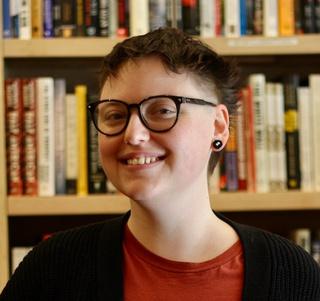 Author ProfiledbyMikeyLaFave
Author ProfiledbyMikeyLaFave

Tundra Books
September 12, 2023
48 pages For Ages 3-7
X FANG is a visual artist and maker of books for young readers. Born in Taichung, Taiwan, and raised in Atlanta, Georgia, she now lives in rural Maine with her husband and their dog, Pamela
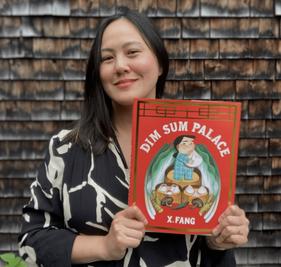
 Mikey LaFave is a bookseller and book club moderator at Avid Bookshop in Athens, Georgia.
Mikey LaFave is a bookseller and book club moderator at Avid Bookshop in Athens, Georgia.
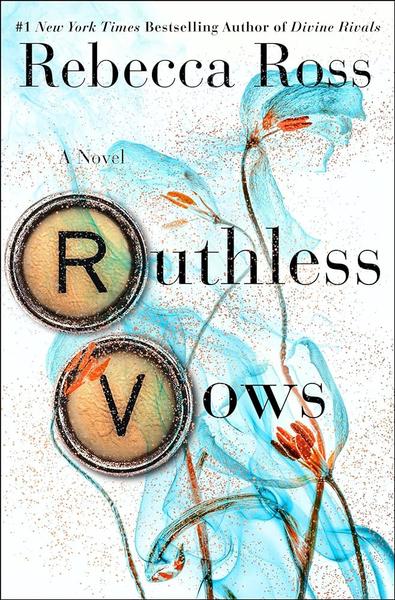
ProfiledbyJacksonPearce
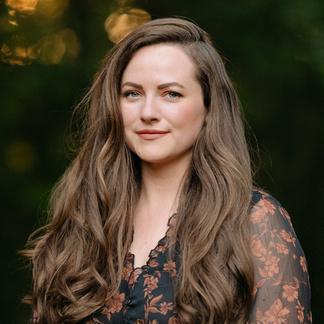 Author
Author
Rebecca Ross is an American author of young adult novels and adult fantasy, best known for her New York Times bestselling Letters of Enchantment duology She grew up in Atlanta and completed a degree in English at the University of Georgia.
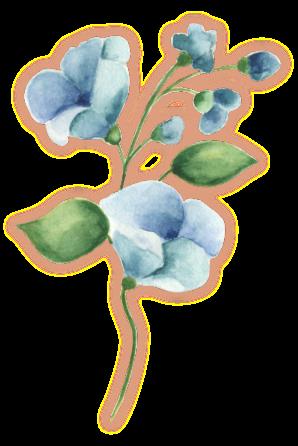
Wednesday Books
December 26, 2023
432 pages
For Ages 13-18
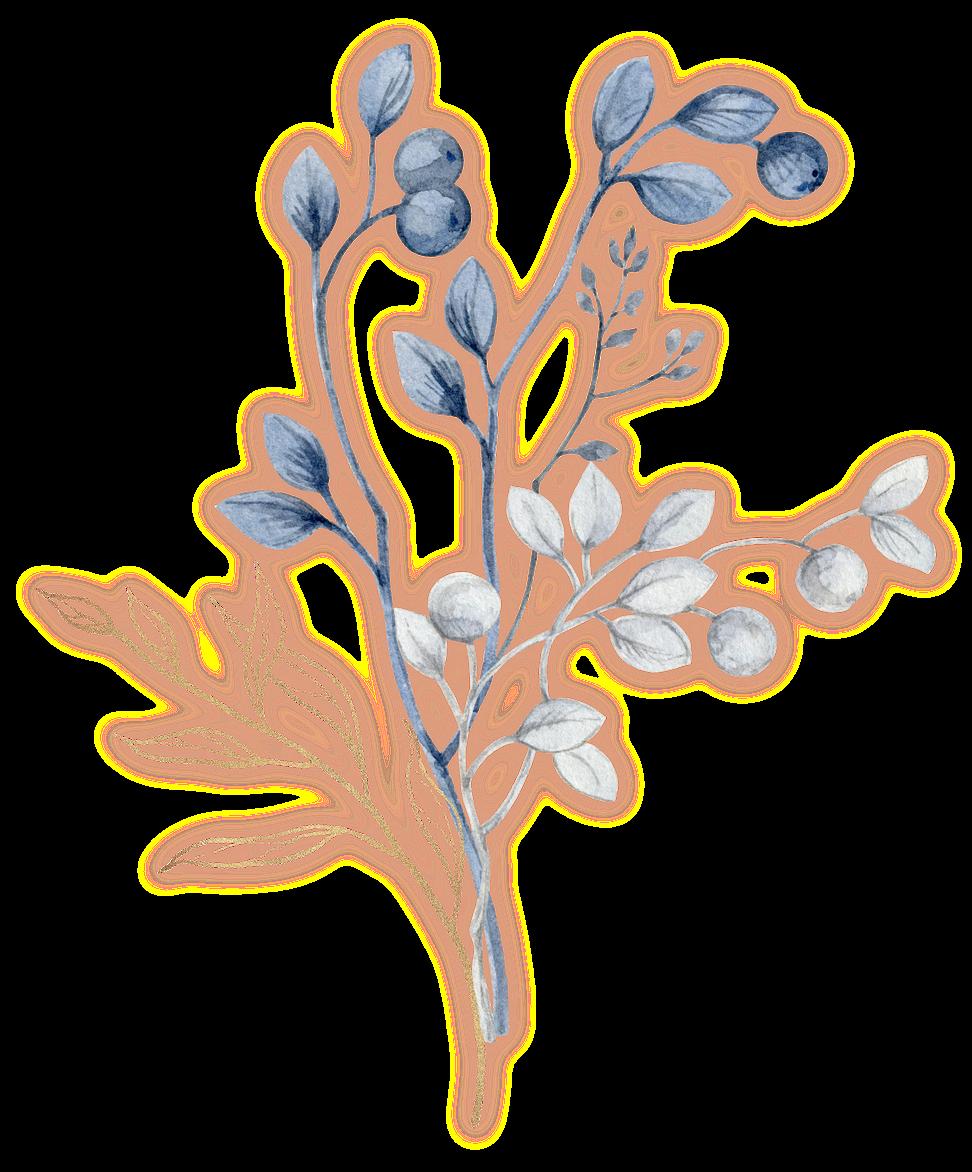
Jackson Pearce is the author of over fifteen books for young adults She completed a degree in English at the University of Georgia and lives in Decatur.
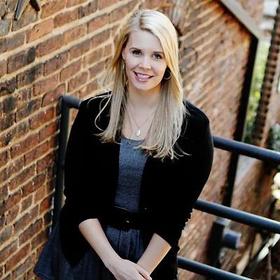
In Ruthless Vows, we return to the fantasy world of Oath, a World War I inspired land of war, gods, and love. Our heroes, Iris and Roman, finally found love at the end of Divine Rivals— which means they’re inevitably torn apart at the beginning of Ruthless Vows, as the war between the gods Dacre and Enva heightens. Iris and Roman keep their relationship alive via letters that will make even the stoniest of hearts flutter, especially when juxtaposed with the backdrop of war and the far more toxic relationship between Dacre and Enva. So much of this story is about the power of the written word—in many ways, it’s a love letter to writing itself. I also confess that I adore a fantasy book that urges us to look at the not-so-beautiful parts of our own world—in this case, how we so often reduce wars to the names of the major players and leaders, while the true tragedy is how it’s everyday people who lose the most when caught up in a fight. This is a must-read for those who don’t mind crying a little—or a lot—as their hearts grow a million sizes.

March 26, 2024
256 pages
For Ages 8-12
 Author
Author
Allie Millington’s debut middle grade novel, Olivetti, was released in March 2024. She lives near Atlanta, Georgia, with her husband, their dog Crumpet, and a collection of clacking machines.
Looking for that great novel that you and a friend can read together? Look no further as Olivetti is just that book. When the protagonist is a typewriter you know the book will be filled with great twists and turns. It is a fun mystery that not only leaves you wanting to know the outcome but opens the door to a conversation on how technology has impacted the world. Remember when technology wasn’t so advanced and families spent time a little differently together? Olivetti gives you a fun glimpse into that discussion and you and your friend will have a great time solving the mystery together. Of course, it is also a great book for adults and kids to read alone. A 2024 must-read.
 Feiwel & Friends
Julia Davis is the owner of The Book Worm Bookstore in Powder Springs, Georgia.
Feiwel & Friends
Julia Davis is the owner of The Book Worm Bookstore in Powder Springs, Georgia.

From the secret files of Mortimer Bray… The perfect read for any kid who has ever felt like an Underdog In this heartfelt story of triumph, Chris Negron shows deep understanding of relationships and how a little bit of courage can “save the day.” The characters, including the fourlegged kind and a crowing rooster, help Mortimer realize that “if something means a lot to you, you shouldn’t hide it!”
Twelve-year-old Mortimer Bray has suffered the loss of his beloved dog Trevor and his trusted neighbor Ms. Opal. He’s given up his dog-walking business and retreated from friendships. Worse, his neighborhood, Townsend Heights, is going through unsettling transformations. He decides that uncovering the hidden past is the key to reuniting feuding neighbors.
Special “ordinance pages” offer a chance to compare overwrought adult policies with the common-sense of youthful opinion, delivered in the form of Mortimer’s “secret files.” Themes of grief, community, and learning from the past are underscored as Mortimer struggles to hold the people surrounding him together even as he battles his own feelings of anxiety.
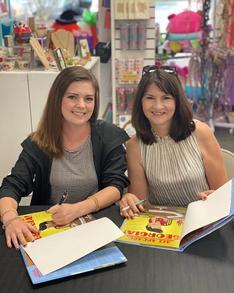
Maggie and Rosalind Bunn are the co-authors of the All Aboard Series, published by Pelican Children’s, an imprint of Arcadia The latest in the series is All Aboard, Florida, due to release Fall 2024.
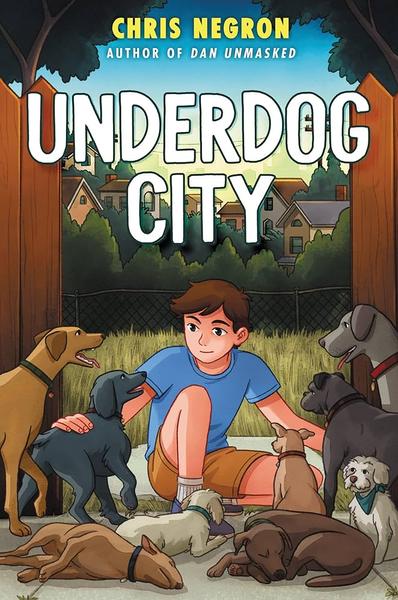

Chris
368 pages
For Ages 8-12
Test your famous dog knowledge! Answers on page 51.



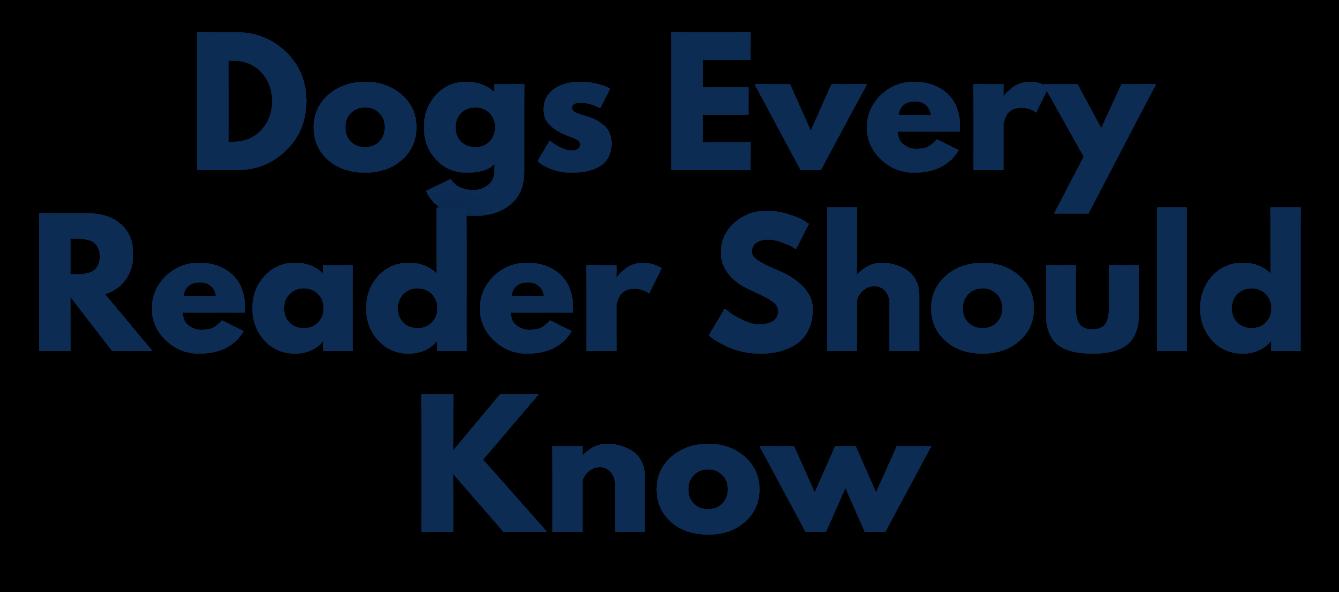

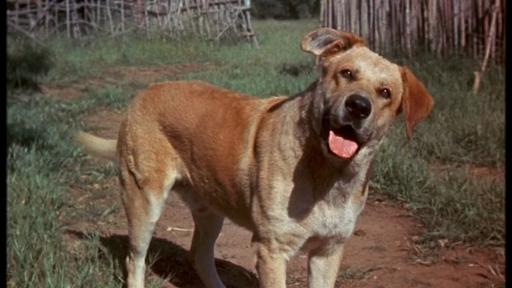



George Weinstein is a passionate writer who does not define himself by genre. Throughout his writing career, he has explored different avenues and been quite successful in doing so. He finds great joy in the writing world— whether in book clubs, writer’s workshops, or any other creative space.
George was raised in Laurel, Maryland, in the late 1960s through the 80s. Even in childhood, he was crafting up stories. Using stuffed animals as actors, he wrote scripts of heroic stories to entertain his siblings. As a teenager, he began to write science fiction stories. He knew he loved writing, and that he excelled in the field—so he gravitated toward classes that let his talent flourish. He went on to earn a degree in Sociology.
George’s creativity really began to flow after meeting his first wife’s father, Vernon. He fondly described him as the greatest storyteller God’s ever put on this Earth. George grew up walking on suburban streets, while Vernon was raised sharecropping in the fields. The stark contrast between their upbringings, along with Vernon’s natural storytelling ability, inspired George to write down what he heard.
Initially, Vernon was not invested in the idea of his childhood stories becoming a book, but eventually he was intrigued by the magic of fiction. George spent two years writing this book, Hardscrabble Road. The name comes from the real street name Vernon grew up on but is also a metaphor for the difficult journey through childhood he experienced. Hardscrabble would go on to be George’s most well-known novel, but this took years.

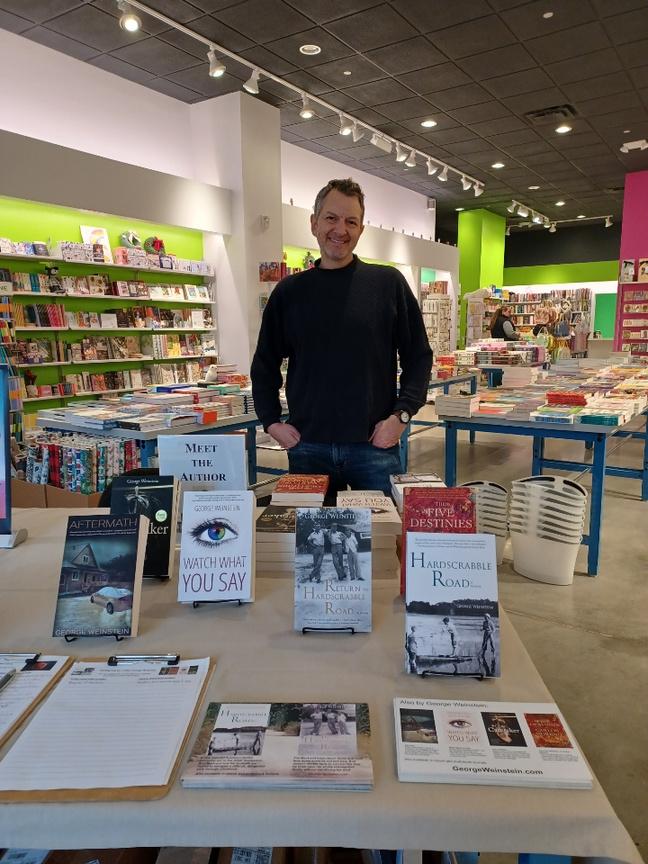

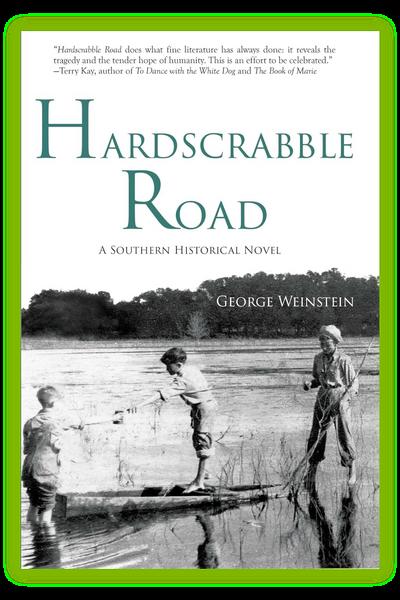
In 2012, George’s father-in-law passed. Hardscrabble had not sold yet, and George was feeling discouraged that his novel had not been successful yet. However, that would soon change. A few weeks following, George had landed a publishing contract for this book. Its sequel, Return to Hardscrabble Road, published ten years later, would continue to gain accolades. It won the Literary Titan Book Award and the Readers’ Favorite Award Bronze Medal.
George had been right all along. People did want to hear Vernon’s stories, and his memory is carried on within those novels. But of course, George did not only write historical fiction. His novel, The Caretaker, revolved around the life of a ballerina who suffered an injury in a car accident that affected her dancing ability. He also wrote a book for nonprofit Tiger Flight Foundation, Jake and the Tiger Flight, which is sold at the hangar in Rome, Georgia. He even ventured into the realm of thrillers, with his novel, Watch What You Say, and comedy science fiction with his latest, Offlining Delving into different genres throughout his writing career has resulted in a varied and intriguing oeuvre.
When George isn’t writing, he’s engaging in the writer’s space in other ways. He has been President of the Atlanta Writers Club twice and now serves as the Executive Director.
Not only did the Atlanta Writers Club give him new opportunities and friendships, but it is also where he met his second wife and love of his life, Kim Conrey. They married in 2021.
He is passionate about other writers reaching out to their communities and connecting with each other. “You’ve got to show up in every way possible. And you cannot imagine the benefits that you will derive when you do that. You cannot guess at the people you will meet, the opportunities you will have, all of that, because you decide to get involved, to volunteer, to be as active as possible,” he said.
George started out as a guest speaker at Georgia Writers Museum, but over time became more and more involved, as is his nature. One of George’s major contributions to the museum was his involvement and direction in the Terry Kay exhibit. Terry was a dear friend of his, and he made sure that his literary legacy was honored and remembered at GWM.

George’s love for writing and writers everywhere shines as he speaks, hosts, and collaborates with others. His work, a diverse and successful collection, represents not only his talent but his ability to overcome and show the world what a good story is.

Emme Clause is a freelance writer for the Eatonton Messenger and the graphic designer for Page Turner She completed a degree in creative writing at Georgia College and State University.
April, May, June 2024
Atlanta Writers Club Locations vary, please check the website.
April 9
Online Workshop
April 17
Online Workshop
April 20
In-person at GSU-Dunwoody
April 24
Online Workshop
April 27
Atlanta Self-Publishing Conference (ASPC) at GSU-Dunwoody
May 3-4
30th Atlanta Writers Conference at Westin Atlanta Airport Hotel
May 18
In-person at GSU-Dunwoody
May 22
Online Quarterly Webinar Series Part 2
June 15
In-person at the Lilburn Public Library
June 22
Online Workshop
June 27
Online Quarterly Webinar Series Part 2
Georgia Writers Museum
109 S. Jefferson Ave. Eatonton, GA 31024
April 2
Meet the Author with Dot Padgett
April 18
GA Writers Hall of Fame Book Club
Frances Mayes, Under Magnolia
April 25
Flannery O’Connor Book Club
The Habit of Being: O’Connor Letters 1963-64
May 7
Meet the Author with Vanessa Riley
May 18
Writers Workshop with Jennifer Lawler
June 4
Meet the Author
Janisse Ray
June 22
Crime & Wine McCracken Poston
Andalusia: the Home of Flannery O'Connor
2628 N Columbia St.
Milledgeville, GA 31061 (478) 445-8722
gcsu.edu/andalusia
Avid Bookshop
1662 S Lumpkin St. Athens, GA 30606 (706) 850-2843
avidbookshop.com
BookLogix
1264 Old Alpharetta Rd. Alpharetta, GA 30005 (470) 239-8547
booklogix.com
Bookmiser
3822 Roswell Rd. Marietta, GA 30062 (770) 509-5611
bookmiser.net
Cold Case Investigative Research Institute coldcasefoundation.org
Greensboro Writers Guild
Lake Oconee Church of Christ 4700 Carey Station Rd. Greensboro GA 30642
Magic Time Literary Publicity magictimeliterary.com
The Atlanta Writers Club atlantawritersclub.org
The Writer’s High thewritershigh.com
Print & Sign Solutions
1023 Lake Oconee Pkwy, Suite B Eatonton GA 31024 (762) 220-1110
printsignsolutions.com
Smith Communications
100 N Jefferson Ave. Eatonton, GA 31024 (706) 485-3501
Southern Indie Booksellers Alliance
51 Pleasant Ridge Drive Asheville, NC 28805 (803) 994-9530
sibaweb.com
Sylvia's Coffee
111 S Jefferson Ave. Eatonton, GA 31024
Uncle Remus Museum
214 Oak St. Eatonton, GA 31024 (706) 485-6856
uncleremusmuseum.org
Visit Eatonton
108 W. Marion Street Eatonton, GA 31024 (706) 485-7701
visiteatonton.com
Weaving Influence weavinginfluence.com




